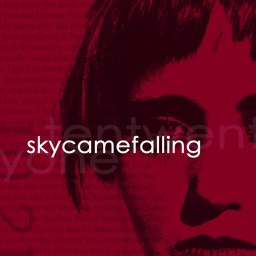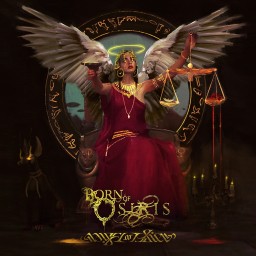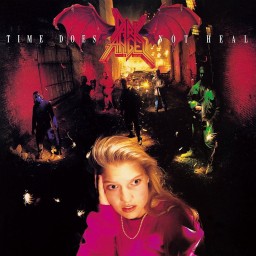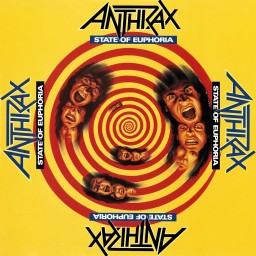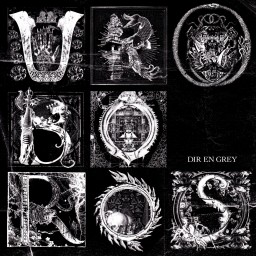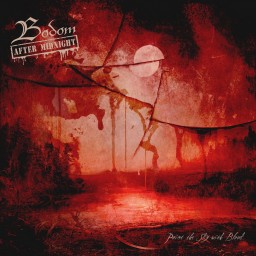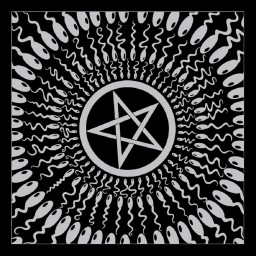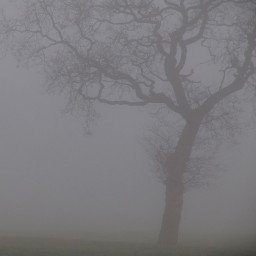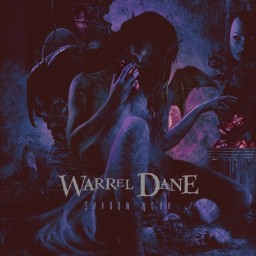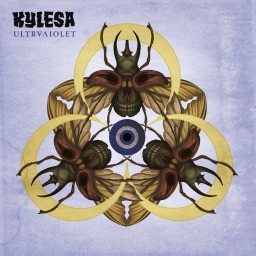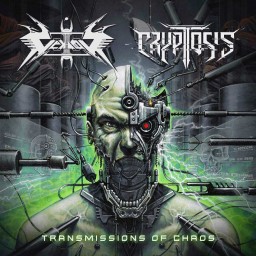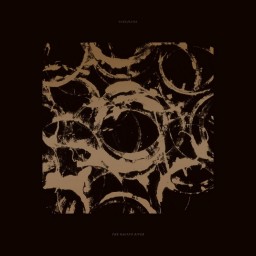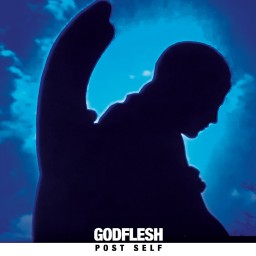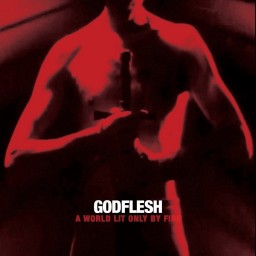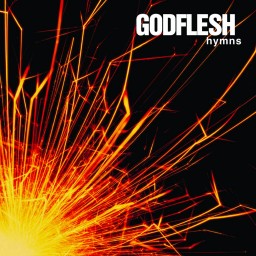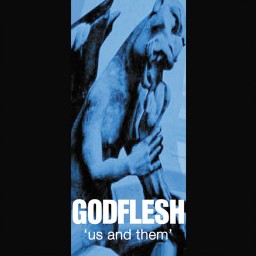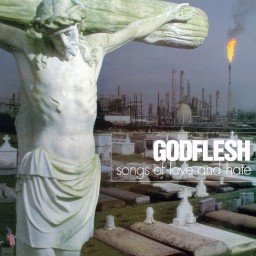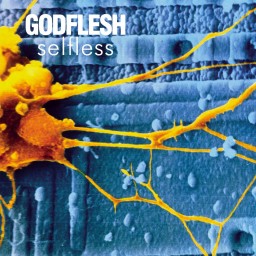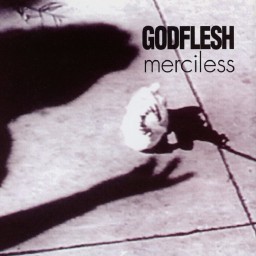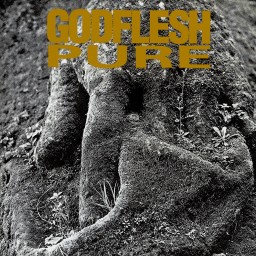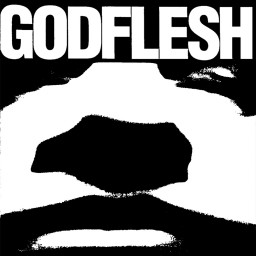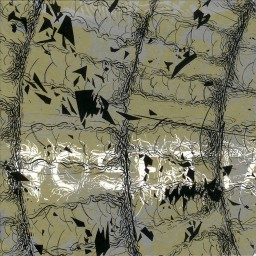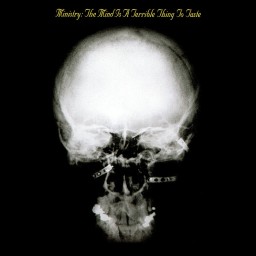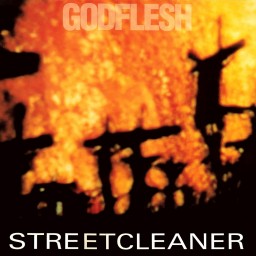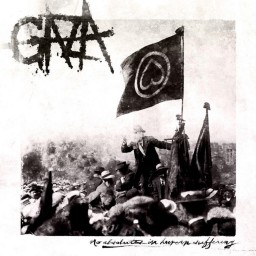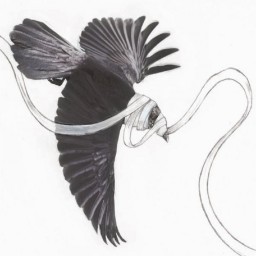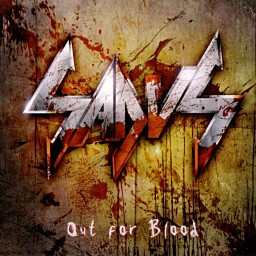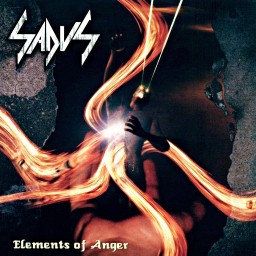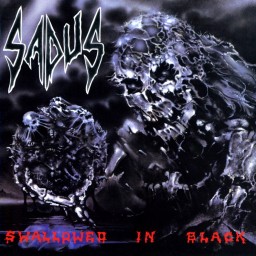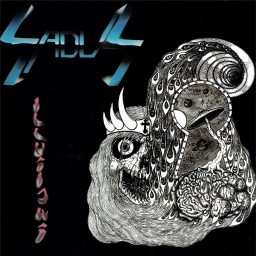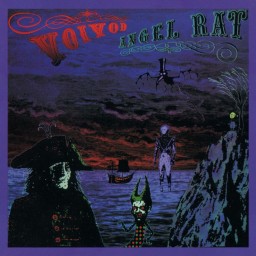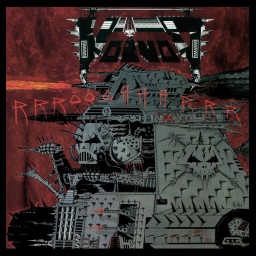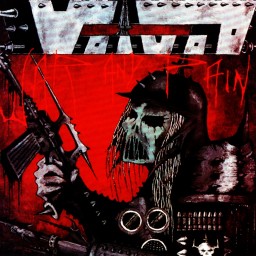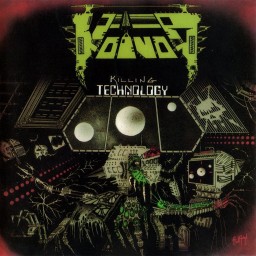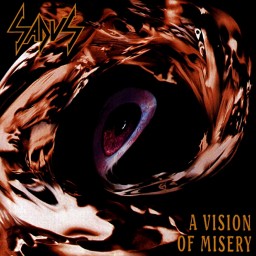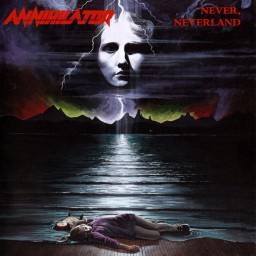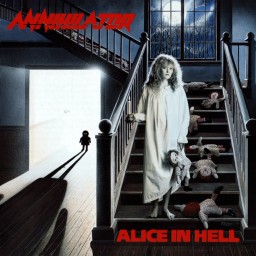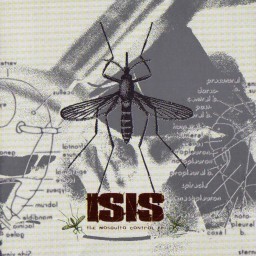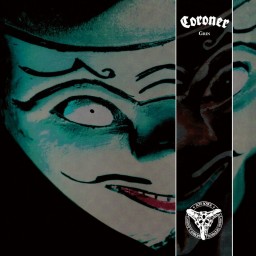Shadowdoom9 (Andi)'s Reviews
I've been in the hardcore/metalcore zone for longer than 3 years now, and I barely despise anything from that genre. I enjoy many Revolution classics, even ones before this album like Calculating Infinity by The Dillinger Escape Plan and We are the Romans by Botch. Maybe someday I can get into other metalcore bands like Poison the Well and Hopesfall, but this band, Skycamefalling is what I'll start with, all thanks to another one of Daniel's Revolution recommendations!
This is one of those albums that essential for the hardcore/metalcore scene in the new millennium. The sole Skycamefalling album 10.21 and Converge's Jane Doe are two of the first metalcore albums with more poetic lyrics than just uniting a brotherhood of rebellion.
The instrumental "Intro" starts the album. Then "With Paper Wings" kickstarts the action. This is probably the band's greatest hit, filled with driving guitar intensity, one of my favorite metalcore songs to remember! I might just feel up to screaming along to the chorus. After grabbing your throat throughout the song, there's a beautiful piano outro that would inspire hundreds of other bands to add something like that to their songs. You know who "Laura Palmer" is, a murdered girl whose investigation serves as the plot to the series Twin Peaks. This is more aggressive than when Swallow the Sun made a song about Laura Palmer. "The Nothing" is a great way to describe where a relationship leads to: "So where were you when one heart became two?! When three words became more than you could chew?!?" I highly recommended listening to that song!
"-" is just a short instrumental. "Porcelain Heart Promises" covers pretty much everything you need to hear from this band. Another recommendation! "Healing Yesteryear" shows what TDEP and Botch should've done the previous year. "Shallow Like the Sand" is definitely what you should come for poetic lyrics: "Trees fall like iron on their way down, we bury our hands in their hearts and waste away again, because I have tried to turn words to stone, tried to fight the day with my eyes closed." Way more thought out than other hardcore bands! "The Truth Machine" continues the classic metallic hardcore, at a time when progressive innovators like Devin Townsend were on the rise.
The instrumental title epic contains 9 minutes of acoustic guitar, clean piano sounding a bit Eastern, and light percussion, leading to an ending crescendo. A soft break while you breathe in the flames of creativity! "November’s Neverending" gives you the idea of an eternal dark winter with no point in moving on. The album closes with "An Ocean Apart", staying strong even after 5 minutes of silence. A fitting end to a hardcore metal album of a beauty and intensity!
I still can't believe this talented group of musicians split up after only one album, but hopefully there would be more after a few recent reunion shows in the 2010s. As much as I enjoy other metalcore bands, I already miss these guys and hope they'll come back again. A metalcore classic of sheer poetry!
Favorites: "With Paper Wings", "The Nothing", "Porcelain Heart Promises", "Shallow Like the Sand", "10.21", "An Ocean Apart"
Genres: Metalcore
Format: Album
Year: 2000
Like a book-writer having finished making his anticipated masterpiece and what started as a small decay turned into a big one when the pandemic hit, prog-death/metalcore masters Born of Osiris suffered a similar fate. The band made a 26-minute "studio album" (nearly as long as Cryptic Shift's "Moonbelt Immolator"), The Simulation, released in early 2019. After spending the first half of the year touring, they started writing the album that was supposed to follow, but for the production, like I said, a small decay turned into a big one. Their pre-recordings fell apart when the world was altered. After spending 2020 writing more material, they were able to hit the studio again to record what turned out to be a 55-minute actual studio album, Angel or Alien!
The band has made quite a 12-year prog-death/metalcore journey of studio albums since A Higher Place (Happy 12th anniversary as of this review!!). Throughout their tenure, their passion and dedication have never died out, with their sound evolving in a time when very low tunings where a thing in the djent lands. Bands are like some foods; you wanna keep enjoying it but eventually you might end up spitting them out before you can swallow. To make sure Born of Osiris is a relevant band and never an acquired taste, they still have the will to continue to push away from the complacent dark abyss. The band that has consisted of Ronnie Canizaro (unclean vocals), Joe Buras (keyboards and clean vocals), Lee McKinney (guitars), Nick Rossi (bass while switching to guitars), and Cameron Losch (drums) make the right turn of igniting the inner fire of their roots that they embrace along with new authentic surprises through this 14-song offering.
Beginning this collection is the catchy danger worth facing that is "Poster Child". At the end of that killer opener, some of their newer elements come in such as the synth-infused saxophone to smooth out the electronic synths. Then the explosion into "White Nile" is detonated with their expected matured refinement taken to the next level. What you may hear in the title track is a long-time-no-listen infectious hook, in which you can't deny its resemblance to their past material while moving the evolution forward. "Waves" conveniently waves for its needed attention. The more brutal "Oathbreaker" continues the expected mix of melodic synths and djenty explosion to please your ears.
The present once again allows the past to stomp through in "Threat of Your Presence", another notable highlight. The emotional "Love Story" is filled with confessional sincerity, far better than that Taylor Swift song. "Crossface" howls like a wolf, reaching a Crossfaith-level of metalcore mixed with EDM synths. "Echobreather" is so beautiful yet pummeling, as the heaviness and growls is balanced with Buras' synth melody and cleans. "Lost Souls" is another astounding composition.
The brutal slaughter continues "In for the Kill" as McKinney's fine guitar work dominates over the cinematic flourishes. A gut-punch of madness is unleashed onto you in "You are the Narrative" (can this "Narrative" really be beaten up??). The self-inflicted deliverance of "Truth and Denial" has Canizaro keeping his vocal edge and pushing it up with his earlier New Reign-era shrieking. The grand finale "Shadowmourne" is almost an anthem for my earlier Horde/Infinite/Revolution clan lineup. This instrumentation in this song alone is almost superior to those other songs and almost every other band with a similar style, and the saxophone makes its triumphant return throughout this piece.
While the semi-massive delay was the virus' fault, Born of Osiris continue igniting the inner fire of their roots as their sound continues evolving beyond bounds. While other bands try and fail, this band creates a strong storm of grace that never falls, and every track in Angel or Alien proves that point. This may not be the direct follow-up to The Simulation, but it's the start of a new era that will continue with another upcoming album Born of Osiris is currently writing. Whatever comes next, I'll be ready. Bring it!
Favorites: "Poster Child", "Angel or Alien", "Threat of Your Presence", "Love Story", "Lost Souls", "In for the Kill", "Shadowmourne"
Genres: Metalcore
Format: Album
Year: 2021
I was thinking about trying to find one more thrash band that would be perfect enough to prove that I can fit well in The Pit, but ultimately, I decided that this can already be proven by a classic I'm already familiar with. One with... 246 RIFFS!!!! All of them rule as they strike through your mind and soul, taking control from beginning to end. Everyone has a different feeling when it comes to a certain album, and I find this album to be full of high-quality thrash genius!
The perfect lineup can show you more than just those killer riffs. The production is clean with audible instrumentation. Drummer Gene Hoglan adds some slower technicality alongside his usual fast thrash. Vocalist Ron Rinehart is a perfect fit here with strong vocals as the riffs from the guitarists slay away.
The title track starts with the first of those hundreds of riffs, slow before becoming lethally fast. The lyrics written by Hoglan are awesome, dealing with insanity and death in greater depths than the still perfect Darkness Descends. D*mn, even the music is incredible, including how well the bridges and choruses are structured. All that confirms that you're listening to one of the most complex and extreme thrash albums around. "Pain's Invention, Madness" has more of those many riffs, as Ron's flawless vocals continue following them. "Act Of Contrition" similar keeps up the variety of riffs to maintain your headbanging as always. The amazing soloing reaches the top compared to some other thrash albums. All this will make you stay in attention through the progressive length that most songs have.
Next one is one of my favorites, "The New Priesthood", in which lyrics detail modern technology surpassing religion. The intro riff is perhaps its most killer here. The most melodic and sinister at the same time track here is "Psychosexuality". Then comes one of my favorite songs in tech-thrash, and maybe all of thrash, "An Ancient Inherited Shame". The band's longest song at 9 minutes, all the riffs in the track kick a**. The progressive structure makes incredible tempo changes from slow to fast and in between. Dark Angel at their mightiest!
"Trauma and Catharsis" is f***ing superb, though the doom intro for nearly first two minutes is slightly unnecessary. However, the memorable fast riffing is still worth it, and the perfection is not affected. Rolling in a more sludge-ish pace, "Sensory Deprivation" is another magnificent track. While staying in the usual grand strength, the closing "A Subtle Induction" is the fastest song here and puts everything to a speedy end.
The Pit has spoken! This is what I truly desire from the clan, a technical heavy sound with awesome music and lyrics. People might think of Darkness Descends as the band's greatest album, and while they're right, Time Does Not Heal is very close to that reign as one of the greatest albums of thrash and tech-thrash. Truly standing the test of time!
Favorites: "Time Does Not Heal", "Act Of Contrition", "The New Priesthood", "An Ancient Inherited Shame", "Sensory Deprivation"
Genres: Thrash Metal
Format: Album
Year: 1991
There are a couple reasons why I wanted to give this Anthrax album a listen and review. First off, I felt a little bad for missing out on that Anthrax concert in my home country that was originally for sometime last year before this review but got postponed anyway because of the virus. Second is the reason why I chose this album State of Euphoria, because it was near the bottom of the 10+ chart list in this site. It's time to see what went wrong for this album...
This album is pretty much the black sheep of Anthrax's classic era. You can SEE why by the trippy cover and HEAR why by the simplified slightly slower sound that thrash fans don't consider a real winner. Despite a small split in the fanbase, the album continued the band's gold-winning streak. It would take some adjustment to get used to this.
Straight into the opening track "Be All, End All", we hear cello. F***ING CELLO!! The heavier fans might think, "That's thrash!? Cello is classical! Blah blah blah..." A strange yet nice addition to a song I find brilliant! If they kept using that cello, they would be an early ancestor of Apocalyptica. "Out of Sight, Out of Mind" is another a**-kicker. Joey Belladonna performs his strongest vocals there despite pressure from his bandmates. "Make Me Laugh" makes me laugh to hear anti-religious attempts to rule television.
What's considered the last winner of the album is their cover of Trust's "Antisocial" that everyone else has heard, but there are several more... The otherwise unimpressive "Who Cares Wins" can rule with Joey's singing from the heart. Another fantastic song "Now It's Dark" is shamefully shunned by other listeners, but it's one of the best for me.
However, I have an issue with the lyrical quality in "Schism", like where is the chorus?! Is that it when Joey scats "sc-sc-sc-schism"? That's quite fake and anti-climatic when expecting something different after the verses. This common issue would be fixed in their next album. Inspired by Stephen King, "Misery Loves Company" can please fans of dark-ish hardcore thrash. The interlude "13" is a small fault. However, "Finale" is a fan favorite that they should play live more often.
In my opinion, while State of Euphoria has a bit of dry gloom in their songs, it's still interesting and the necessary balance of thrash between the apparent light of Among the Living and the apparent darkness of Persistence of Time. F***ing h*ll, I enjoy this more than most other fans would, but it still doesn't get me in the mood for Anthrax....
Favorites: "Be All, End All", "Out of Sight, Out of Mind", "Who Cares Wins", "Now It's Dark", "Finale"
Genres: Thrash Metal
Format: Album
Year: 1988
Once a Japanese Visual Kei/glam rock band, Dir En Grey toned down their earlier imagery and focused on becoming something greater and more modern. Their superb songwriting will surely persuade listeners to enter the Japanese alt-garde metal realm!
Their 7th album Uroboros further establishes the unique genre the band has reinvented, all in emerging triumph. It is an exploration through new territory while staying familiar to earlier fans. They continue to expand on the earlier pop elements but twist it with the metal sound that would dominate this album in sonic talent. And seeing how I can better tolerate both Japanese metal bands and bands in other languages besides English, I should have no problem here...
The album begins with the intro "Sa Bir" with deep drum looping, subterranean synths, cimbalom, bass, and background vocals by lead vocalist Kyo. It is a little risky to open the main action with a 10-minute epic, but "Vinushka" wastes no time getting into the zone with an acoustic intro with soft clean vocals, before crashing into metal riffing and vocal reverb. Dynamic time changes are a stunning addition to this dark gothic-ish tune. Throughout these 10 minutes, the song just walks carefully over a deep pit but keeps staying together thanks to the vocal styles that vary more than Mike Patton. In the middle, you get a killer thrash/death metal section before returning to dark prog-pop from early on, and everything works for a seamless enjoyable experience! "Red Soil" has a bit of Soilwork-like riffing and growls while still having melodic dark pop verses. "Dōkoku to Sarinu" (Gone With Lamentation) can help you identify the vocals from whispering to shrieking in the blink of an eye. They've maintained their harder edge for a few years before this album, living up to their experimental metal motive that was never present in the 90s. "Toguro" (Coil) shows the bass carried out of the bottom of the mix.
"Glass Skin" has a dark ballad vibe closer to some of Dream Theater's ballads. Another standout is warped funk-rocker "Stuck Man" with killer bass. Another great song in that style is "Reiketsu Nariseba" (If I Was Cold Blooded) that blends the jazz and vocals of Mr. Bungle with Schizophrenia-era Sepultura. The elegant layers of "Ware, Yami Tote" (For I Am Darkness) includes Kyo's emotional singing, the breakbeats, and guitars that hook together acoustic and electric.
Before we get to the next track, there are two bonus tracks in the remastered version, the devilish "Hydra -666-" and "Bugaboo Respira", which is an odd prelude to what you were waiting for. But was it worth the wait? "Bugaboo" is as odd as the bonus prelude, but I still like it, and the album's 5-star score remains intact. "Gaika, Chinmoku ga Nemuru Koro" (Paean, the Time When Silence Sleeps) can range from emotional to a rapid headbanger. "Dozing Green" is a further demonstration of the band's sonic talent. "Inconvenient Ideal" is a ballad that seems like an inconvenient way to end the album, but I digress.
I don't know what else to say about Uroboros, other than... Get it right f***ing now! If you enjoy this alt-garde metal kind of style, this would get you hooked, otherwise you would be better off elsewhere. Dir En Grey have made one of the proudest achievements in the history of metal!
Favorites: "Vinushka", "Dōkoku to Sarinu", "Stuck Man", "Reiketsu Nariseba", "Ware, Yami Tote", "Gaika, Chinmoku ga Nemuru Koro", "Dozing Green"
Genres: Alternative Metal Avant-Garde Metal Progressive Metal
Format: Album
Year: 2008
This is the only death metal album rating and review I'm gonna keep. I promised myself I would stop listening to death metal and avoid it at all costs, but I felt like giving myself an exception. I mean, it is quite understandable, right? Y'know, when a band you've heard for a few years has ended, followed a year later by the tragic passing of their guitarist/vocalist during a new project. You probably know how I felt...
Legendary melodeath band Children of Bodom split up when half of the band left, taking the rights to the name with them, so guitarist/vocalist Alexi Laiho formed a new band Bodom After Midnight. Sadly he passed away at the end of 2020, leaving behind a few songs for an upcoming album. The rest of the band released those 3 songs as an EP, and ended the project, knowing that this was Laiho's project and continuing under its name would put them in the same legal trouble he almost had over the name rights of Children of Bodom. As a tribute to their fallen leader, Paint the Sky With Blood does great justice to his absolutely astonishing career that's now gone too soon.
Beginning this 15-minute offering of melodeath entertainment, the title track has epic melody. Fast riffs and powerful rhythms battle against neo-classical solos and fun keyboards. Alexi Laiho has vocal charisma, especially in the catchy chorus supported by gang vocal fury. This is very well the best song he has ever written in his career, absolutely hungry for the epic fury he hadn't had for 20 years. The song does indeed sound fitting for that early era of Children of Bodom.
The second track is probably the least strong and most brutally lyrical of the EP, "Payback's a B***h". It starts with heavy breathing, then energetic rhythms, furious riffs, and relentless reckless vocals kick in. There's less catchiness but more brutal atmosphere that sounds fitting for the later part of Children of Bodom's middle era 10 years ago.
The EP ends with an excellent Dissection cover, "Where Dead Angels Lie", the longest song in the whole Bodom band universe, just a few seconds longer than "The Nail" from the 1997 Children of Bodom debut Something Wild. The sinister atmosphere and melody remain while adapting into the EP's impressive technical melodeath. The song has a slower pace than the other two, but it will keep you interesting throughout these 6 and a half minutes. The original Dissection song has been appreciated by melodic black-death fans. Two melodeath-ish bands, both split up, each with their guitarist/vocalist passing away shortly after.
At the end of it all, Bodom After Midnight have made their only studio appearance with Paint the Sky With Blood, an excellent swansong EP for the melodeath mastermind Alexi Laiho. I highly recommend this timeless piece of melodeath for fans of the genre who want to preserve it for many generations. RIP Alexi and Bodom....
Favorites: "Paint the Sky With Blood", "Where Dead Angels Lie"
Genres: Death Metal
Format: EP
Year: 2021
Today is the day, a very special day... It's my time to try a bit of experimental noise-metal with Today is the Day! I tried reviewing one of their other albums that was an Infinite feature release, but I bailed out because it was too much for me. So let's find out how I'm gonna handle this one...
The 1997 Today is the Day release, Temple of the Morning Star has been known as a noise metal classic, and for its 20th anniversary in 2017, a deluxe reissue was released to include a bonus CD filled with demos and a live concert from the original release year that was released in 2007 but remastered for the album's reissue. It might seem amazing, but if I can stand the noise-ridden music in the original album, maybe then I'll proceed to those rarities. (spoiler alert: I didn't)
The opening acoustic intro starts the album in nihilistic nature ("I am slowly dying, I can’t be what you want me to be, I am dead") to summarize the views of lyricist/founder Steve Austin (not to be confused with "Stone Cold" Steve Austin). A pleasant acoustic start before the cathartic start of the sound that inspires metal acts like Converge and Thou. After that acoustic intro is a sample of Waylon Jennings' "Good-Hearted Woman", then the screaming chaos of "The Man Who Loves to Hurt Himself" starts to frighten those who aren't prepared. "Blindspot" sounds more repetitive in the riffing, but the sirens almost make the chorus sound like Pac-Man. The dark sludge to appear in later albums is hinted in "High as the Sky". My favorite track in the album is "Miracle". It's short but it sums up everything the band has from anger to doom.
The lyrics in the album are far too direct, especially in "Kill Yourself", when he gives clear instructions to take a blade and cut through the wrists, neck, thighs, heart, etc. ("Why hold back!? Kill Yourself!!! Take a blade!! Do it fast!! Do it clean!!!") No thanks! I got a lot to live for and I don't wanna waste my life by bleeding to death. A more experimental sound can be heard in "Mankind". The minimalistic noise rock of their earlier albums returns in "Pinnacle". More of the astounding noise layers come in "Crutch", keeping up the break from the emotional melody before the next track. "Root of All Evil" is a more melodic song in contrast to most of the songs so far, but before the heavier listeners could call it "filler", the powerful crescendo is still in possession. "Satan is Alive" has far more Satanic experimentation than reversed messages. Maybe playing it backwards would summon Satan itself, but do I dare to? NAH...
"Rabid Lassie" continues the melodic groove while still having rabid experimentation. "Friend for Life" is a pointless half-minute acoustic interlude that I want banned for life. Austin does a bit of clean singing in "My Life With You" (while still screaming), a tale of disappointment and demise of his ex-relationship. "I See You" can kinda be a sequel to that previous track, where he ends up seeing his ex in his dreams. We come near the end with the 8-minute doom epic "Hermaphrodite". The ending electric outro ends the album similarly to how it began, but of course more electric and tuned up a semitone. Technically the original album ends after a hidden cover of "Sabbath Bloody Sabbath".
Here's a bit of listening advice; play the album as loud as you can, but only in a soundproof room where no one can accuse you of "disturbing the peace". The only distortion you wanna hear is that of the guitars and not the production quality. The band has aced their sound but I still don't feel ready for more of that noise. Maybe some other day....
Favorites: "Temple of the Morning Star" (both versions), "The Man Who Loves to Hurt Himself", "Miracle", "Root of All Evil", "My Life with You", "Hermaphrodite", "Sabbath Bloody Sabbath" (hidden Black Sabbath cover)
Genres: Avant-Garde Metal
Format: Album
Year: 1997
Jesu is a band formed by Justin Broadrick that was active during his decade-long breakup of his main band Godflesh. The name is spelled like "Jesus" but without the second S, and pronounced "yay-zoo", like when you say "Hey kids, we're going to the zoo!" and your kids are like "YAY, ZOO!!!" I decided to give this EP I requested to add to the site a listen to see if I'm up to completing my post-sludge elemental star. Probably not at the moment, but never say never...
Fans of Justin's work pretty much fell in love with Jesu's 2004 self-titled debut and were glad to hear him still in action. In an attempt to match its greatness, he continued the project with the EP Silver. This really does seem closer to post-sludge than the drone of their debut, but it still has the band has to offer.
Off in a good start is the title track that marks the beginning of what the sound has; electronic ambient sludge instead of drone. A good but not too shocking opener. "Star" is an upbeat alt-like shocker. Jesu fans might have trouble digesting it, but it's all good once you get used to it. The second half is where things slow down to the drone style of their debut album and EP. "Wolves" is good, though sounds closer to the drone of their debut. The last track, "Dead Eyes" discards most of the guitar heaviness for synths, thereby being the EP's black synth sheep. I really like this song because of the well-placed synth-ambience, so it's my black synth sheep of favorite songs...
There are two bonus tracks in the Japanese release, which are original mixes of "Silver" and "Wolves", but seeing how the EP versions are the slightly lower quality half, I'll skip those two bonuses. Despite that, I really enjoy Silver, and how can a band not have even the slightest complaint, right? JK Broadrick has still got it!
Favorites: "Star", "Dead Eyes"
Genres: Post-Metal
Format: EP
Year: 2006
Shadow Work is known as the swansong album for Warrel Dane, who suffered a fatal heart attack while recording. He was one of the best singers in metal, and now we get to experience his last ever material. Despite being incomplete, this album is incredible! All fans of Nevermore and the recent Sanctuary should enjoy this twisted darkness.
This album was released 10 years after Praises to the War Machine, when he still had the light of Nevermore while using less of that band's virtuosic technicality. Shadow Work is so heavy and impressive, and he recorded the album in Brazil with a local band. I'm guessing those two guitarists Johnny Moraes and Thiago Oliveira were trained by Jeff Loomis before recording with Warrel Dane. The riffing balance between heavy and melodic sure has been inspired by Nevermore.
High-quality ethnic sounds perfectly fill the overture "Ethereal Blessing". Then the intense "Madame Satan" starts the extreme action in a bang. "Disconnection System" is closer sounding to the second Nevermore album The Politics of Ecstasy, even recycling some lyrics from that album. The best song to sample before the rest!
"As Fast as the Others" is ironically not as the title says, but it does have an arena rock vibe. The title track distinguishes the album from its atmosphere with its killer heaviness that make the song a highlight. The intro to their cover of The Cure's "The Hanging Garden" is probably the darkest and most extreme section of any song Warrel Dane had worked on. The guitar stays both vicious and atmospheric with a few unexpected twists, as Dane's melodic vocal emotion shines over prog-death instrumentation.
The ballad "Rain" is more accessible while still gloomy. "Mother is the Word for God" is the epic closer with all his vocals heard for the final time, from snarling to whispering. All that's missing is his falsetto from the earlier Sanctuary, but he has worn it out. This really echoes the title epic of Nevermore's This Godless Endeavor without copying.
In the beginning of this review, I mentioned that this album is incomplete, right? Yeah it was supposed to be almost twice as long, near the 80-minute CD time limit, but after Dane's passing, they used the songs he completed and thus came Shadow Work. Those recordings were made possible thanks to Dane's band and the last of his emotional vocal drama. It might seem a little rough on the edges, but this is the best album for his singing at the very end of his over 3-decade career. Thank you, Warrel Dane..... RIP
Favorites: "Madame Satan", "Disconnection System", "Shadow Work", "Mother is the Word for God"
Genres: Progressive Metal
Format: Album
Year: 2018
I've never really been a Kylesa fan, but I recently stumbled upon a couple of their songs, each from one of their albums, when searching for Spotify recommendations for my private-at-the-moment playlists. While the first song, "Tired Climb" from Spiral Shadow, was a restrained pop-ish metal disappointment, the second song which appears in this album, Ultraviolet (I'll tell you which one when we come to it) is heavier and more superior. This made me surprised that this album is considered non-metal, when I hear stoner metal all over in that song, but having learned my lesson after my Alcest review/judgement submission, I decided I won't submit this album into the Hall until I make a full review. So let's dive into this offering from a sludgy stoner metal band from Georgia!
I am quite curious to see if there's metal here or not, but while the metal strength is prominent enough to be in a clan, it seems more diminished than most other metal albums I've listened to. That might sound awful, but the approach works better than you might expect because it has way more psychedelic abstract than mainstream sugar. Instead of 21 Century Blink 182-inspired music, they've gone backwards in time with their influences ranging from 90s alt-rock to 80s post-punk to 70s Pink Floyd. Baroness and Kylesa stay king and queen of present-day stoner/sludge, but the latter's sound is more evident, proving that this album is, once and for all, considered metal.
"Exhale" sounds great with cool downtuned fuzz, but the lyrics can come out hilarious. The band's combination of heavy sludge metal with psychedelic trance is so obvious in "Unspoken", their most accomplished mission in reminding me of how metal they are. In fact, that's the song from this album I found when I was adding recommended songs to one of my playlists to my Spotify account, and the main reason for this review. "Grounded" is another great song.
"We're Taking This" is short but has f***ing intense vocals with insane lyrics. The guitars sound fresh, especially at the two-minute mark that reminds me of Mastodon, though not as amazing as "Unspoken". Except in this one, you hear massive atmosphere with amazing riffs suitable for metalheads. Seriously, those sinister vocals are awesome! You'll find a lot of sludge stacking up more than Red Fang or Stake, and did I mention the heavy uncompromising riff in the psych section. It's so short, unlike Mastodon's longer songs, but I love it! I also say h*ll yeah to the awesome "Long Gone". The short "What Does It Take?" is faster, but in a Placebo-gone-metal kinda way. Philip Cope goes solo when doing the vocals for that song. "Steady Breakdown" starts with what the title says, but over the stoner rhythm is a memorable melody. However, the melancholic passages make the band have a Beach House-like sound. Laura Pleasants returns with her vocals and riffs there.
"Low Tide" is a somber flashback to Joy Division. "Vulture’s Landing" continues the speed with Laura's vocals soaring through the air, along with a short solo trip. A killer heavy tune! "Quicksand" is a quick song with not a lot to note here. "Drifting" starts off sounding more suitable for stoner smokers before increasing heaviness.
Ultraviolet is a pleasant break from the extreme metal realm of growls and blast-beats, but there are a few outstanding riffs and heavy solos, though with barely any doom in the guitars. However, what's really missing that would make the album more appealing would be any tribal drumming jams that would make the dreamy soundscape and the heavy vocals more solid. Ultraviolet might not make Kylesa reach my interest, I love the mystique of this album! Kylesa have really evolved their sound along with fellow prog-sludgers Mastodon and Baroness. Ultraviolet is an album I would recommend to people with broader stoner tastes who might find this kind of metal fascinating....
Favorites: "Unspoken", "We're Taking This", "Long Gone", "Steady Breakdown", "Vulture's Landing"
Genres: Non-Metal
Format: Album
Year: 2013
Wow... Vektor has changed a lot since we last heard of them! First off, they set the tuning to the standard E, as opposed to the slightly higher F tuning in all their previous releases, and that's a bummer because I was kinda hoping for them to pick up some C-tuned 7-string guitars for a heavier yet ethereal sound. Second, the vocals! David DiSanto has been known for his high shrieking, yet the vocals here are mainly more melodic and clean, with a small bit of the shrieks only in the background. I think he lost most of his screaming ability after using it all up on his ex-wife (sorry, I know, poor taste).
With the E tuning and mostly cleaner vocals, "Activate" sounds closer to the 80s albums of Voivod and Coroner (both bands I enjoy) than the unique style Vektor has been known for. That song is, in my opinion, the band's fourth-worst song (second-worst being "Collapse" and first-worst being "Mountains Above the Sun"), though it's not bad enough to be a sh*tter and it still remains solid. What is the third-worst Vektor song, you may ask? Well that would be the other song of the EP...
I spend some time wondering if this other song, "Dead By Dawn" would have this new sound as well or their unique style from before, and if they both have this new sound, is it just one-off for that EP, or will it affect their upcoming album and become permanent?? Only time will tell for the latter, but now I know the answer to the former. IT'S THE NEW SOUND!! The first half is a clean Pink Floyd-like prog ballad while the second half continues Vektor's signature thrash, like a "Collapse/Ultimate Artificer 2.0" or some sh*t. My third least-favorite Vektor song behind "Collapse" and "Mountains Above the Sun" while still staying solid.
With that, I decided to check out the other band of the split EP, Cryptosis, and let me just say... They're like a Vektor-ized Revocation! Born out of the ashes of Distillator, the death-ish tech-thrash complexity they started developing along with Vektor-inspired sci-fi themes. Their two songs in the EP, "Decypher" and "Prospect of Immortality" are great singles.
Who knows what Vektor would sound like in their next album? Is this their new normal of just a one-off thing? That's probably one of two things I wanna know from Vektor, the other being whether or not they'll re-record the Demolition epic "Moonbase". For now, I shall enjoy this band and new fellows Cryptosis....
Favorites: "Decypher", "Prospect of Immortality" (yeah, I like the Cryptosis songs better the Vektor ones)
Genres: Thrash Metal
Format:
Year: 2021
So... 5 tracks in under 40 minutes. I guess this can kinda be considered an EP, being only half as long as A Dawn to Fear. It looks as if The Raging River was created as the then-unknown third nearly 40-minute disc for A Dawn to Fear, but and it certainly sounds that way too. This EP can be considered both a perfect post-sludge continuation to A Dawn of Fear and a look-back at their magnum opus Somewhere Along the Highway. Even the order of songs is kinda similar while staying new!
"Three Bridges" starts experimental, but then it builds up to epic post-sludge Cult of Luna fans want. The twists and turns that combine heaviness and emotion just continues rolling. "What I Leave Behind" fills your heart with pain and despair in sludgy destruction.
"Inside of a Dream" is a short pretty ballad with nice ambience. Mark Lanegan, known as a former member of Screaming Trees and Queens of the Stone Age does great soft clean vocals. "I Remember" is another epic-sounding song with better riffs and amazing vocals. The finale epic "Wave After Wave" does exactly what the title says; hit you with wave after wave of massive flowing transcendence. An epic climax of weaving instrumentation fills up the last few minutes, keeping up the band's lucky album-ending streak.
All in all, Cult of Luna have released another perfect energetic release. You can play A Dawn to Fear and The Raging River back-to-back, or listen to the EP on its own, whichever seems better for each fan. Feel the rage!
Favorites: "Three Bridges", "I Remember", "Wave After Wave"
Genres: Sludge Metal Post-Metal
Format: EP
Year: 2021
Godflesh have made two amazing albums in the 2010s! They haven't sound this good since the early 90s. They went a little downhill with a few experimental albums and would eventually break up after 2001's Hymns.
Fast forward to 2009 and these industrial metal innovators reformed as a live band. It wasn't until 5 years later when they rewarded fans for their patience with their first EP and album in over a decade. I enjoyed A World Lit Only by Fire quite a lot, a straight throwback to their earlier sound. And here we are again with another golden album in 2017, Post Self! Their 8th album with strong conviction.
The title track opens with the band's classic sound; a pounding drum beat and simple heavy riffing. The soundscape is relaxing yet dissonant. Nothing's out of place! This cohesive sound is still doing well after all those years of experience. This is also proven in "Parasite". While "No Body" brings back the groove of Selfless.
Laying back the sounds a bit is the ethereal "Mirror of Finite Light". Though more industrial-driven, it's a nice break from the earlier monolith metal ambience. However, that returns in the doomy "Be God". Whereas "The Cyclic End" adds more spacey atmosphere, the kind to expect in Jesu. So things get a little more ethereal at this point of the album, and you're about to get more...
The trek peaks up with "Pre Self", continuing the spacey post-rock sound, to remind some of the sonic grief of early Swans. "Mortality Sorrow" recalls the band's earlier electronics, as G.C. Green's bass thunders through with his bass, bring something old into the new in a strange mix. For "In Your Shadow", I've talked before about how the earlier Godflesh material would inspire the sludgy vibe of Converge's You Fail Me, and that's recalled again there, though mostly dominated by hip-hop instrumentation. "The Infinite End" lets everything out from the band before ending with eerie synths, though it sounds like there should be more to come from the band. To be continued, I guess...
Whatever concerns me, Godflesh continues to impress us with the strength they've regained since their reformation. While they're all shorter than half the amount of songs from the previous album, more of the new ground has broken without too much force. Broadrick is so brilliant at putting together this industrial metal sound he's had since the late 80s. Whether old or new, Godflesh fans can find great pleasure in Post Self, and expect more of the best from the band in the future!
Favorites: "Post Self", "Mirror of Finite Light", "The Cyclic End", "In Your Shadow", "The Infinite End"
Genres: Industrial Metal Post-Metal
Format: Album
Year: 2017
Justin Broadrick has restarted the band he's been mostly known for, with an awesome comeback! A World Lit Only by Fire marks a return to their crushing roots, twisted to become more interesting. To recap this band dynamic career leading up to this album, first they made a trio of albums that solidified their freshly invented industrial metal with the apocalyptic Streetcleaner, the monolithic Pure, and the harsh Selfless. Then they brought in a diverse cauldron of drum 'n' bass, IDM, and hip-hop in the mellow Songs of Love and Hate and the overly groovy Us and Them. Finally, Hymns was a more experimental post-metal-ish album that would hint at Broadrick's next project Jesu.
13 years later, Godflesh fans thought there would be a Hymns Part II, but they ended up getting a pleasant surprise. The earlier violent darkness of industrial metal is back in form, continuing what they had 25 years prior in Streetcleaner! Of course it's not really a sellout plan, instead being a return to what they do best, like what Black Sabbath and Carcass did in their comeback albums the previous year. Don't get me wrong, this isn't just recreating Streetcleaner, this is a brand new direction based on that. Some things are different and more modern without making any sacrifices, like for example, crushing 8-string riffing! They now have the axes forged by Meshuggah for djent descendants, and it sounds insane. Of course, it's just dissonant chords and atmospheric riffs that are far away from what would be considered djent.
"New Dark Ages" marks the band's killer return, starting a new dark age for their industrial metal sound. Another worthwhile track is the aggressive march of "Deadend", where the drums and bass (I mean the instruments this time) shine along with the harsh yells. I also like the shuffled rhythm in "Shut Me Down". Next song "Life Giver Life Taker" once again makes sure there's nothing stale or repetitive here, unlike the previous 3 albums.
Obey the demanding power of "Obeyed"! Rhythms keep stomping through in "Curse Us All". Then sludge crawls through in "Carrion", similar to what the band in late 80s when their industrial sludge sound was fresh and new.
There's some more cleans in "Imperator", a bit surprising for first-time listeners of the album. Adding in something unexpected in very sparse gaps can help keep listeners interested. His decent singing through post-drone is a nice break from the earlier harsh yelling. Oh the audacity while maintaining the atmosphere! "Towers of Emptiness" is probably my favorite track here, just listen to it! "Forgive Our Fathers" has dreamy atmosphere that's never out of place. Justin continues his vocal variation once more, from his usual low growls to the occasional usage of clean singing.
All in all, A World Lit Only by Fire shows Godflesh making a solid comeback; modern production, heavier djent-sounding riffs, and amazing vocals in fun crushing songs with lots of background textures. Despite the bass and drums not getting much of the spotlight, it's still a solid interesting album, like a modern Streetcleaner 2.0. A promising start of the band's new dark age!
Favorites: "New Dark Ages", "Deadend", "Obeyed", "Imperator", "Towers of Emptiness"
Genres: Industrial Metal Sludge Metal
Format: Album
Year: 2014
Hymns would mark the last Godflesh album before their decade-long split-up. They've definitely had more industrial metal in their earlier works. While this one does not have as much industrial, there's barely any weakness. Most of the keyboards are dropped with more emphasis on guitar, bass, and real drums, and it actually sounds strong. This trio actually worked pretty well, unlike other trios that end up sounding boring as a tea party (both the band and literally). Why did they have to break up with a steady lineup?!
For this album, the industrial beat is more of a background aspect. This group of geniuses know how to add small amounts of drum loops and keyboard into the songs and somehow make them sound so big. It's great for the music's diversity!
The album opener "Defeated" starts slow in the intro. Despite the guitar strums and hit-hats, you might start to fall asleep until your jolted awake at around the one and a half minute mark where things get more interesting as the action begins. After that slow fitting intro, the heavy beats and guitars are brought forward and continue from there. Then there's hip-hop-inspired riffing in "Deaf, Dumb & Blind" (3 things I don't wanna be altogether). "Paralyzed" would have you paralyzed by the industrial metal groove. An interesting highlight is "Anthem". After 3 songs of shouted vocals, this one focuses on clean singing. Such an amazing anthem! A haunting vibe is added to the guitar thanks to those vocals. Sadly, "Voidhead" doesn't really work well when it comes to those clean vocals.
The tyrannical aggression returns in "Tyrant" when the cleans are replaced with the shouts. I enjoy the atmospheric sludge anthem "White Flag", but the clean vocals sound so terrible that there's no chance it would ever be a highlight. However, "For Life" is a heavy groove track that would become a fan favorite for life. Then we swing into even more groove with "Animals" with great riffs.
"Vampires" has a darker vibe. Same with "Antihuman". However, reigning over them is the most triumphant song here, "Regal". However, what really deserved mentioning is "Jesu" (pronounced "yay-zoo", like when you say "Hey kids, we're going to the zoo!" and your kids are like "YAY, ZOO!!!"). Not many of the other songs can surpass this one, it's so beautifully haunting. The beauty is especially found in the clean hidden track, a good hint at the project Jesu, which Justin Broadrick would start in the aftermath of losing everything including his main band, money, house, and marriage, but with that project, he would slowly get his life and Godflesh back on track.
While many sound repetitive, they all have a unique identity despite lack of the elements that made their signature sound. Still, Hymns is pretty solid, though not as great as their classic releases. I understand how far this duo (for the most part) of technical industrial metal had come to that point, to fill your ears and drums with heavy hymns....
Favorites: "Defeated", "Anthem", "Tyrant", "For Life", "Regal", "Jesu" and the hidden track
Genres: Industrial Metal Sludge Metal
Format: Album
Year: 2001
So the album before this one, Songs of Love and Hate, was kind of a half-good album that doesn't live up to the strength of Godflesh's first 3 albums. But if you think any of the songs in that album are bad, wait until you hear what they got in Us and Them...
Godflesh decided to break out of the earlier humanistic approach for something more technological. Most of the harsh industrial metal is stripped down into broader ideas of trip-hop, drum 'n' bass, and ambient textures. It's the kind of trend that ends up getting outdated, yet when the usual monolithic bass and dark riffing come in every now and then, it's a fresh refreshment as opposed to this eclectic techno sh*t. Expansive while lacking innovation resulting in something somewhat dull.
The drum 'n' bass beat patterns of "I, Me, Mine" sound OK in quality, but for many listeners, it might cause some boredom. Then we have the hip-hop sample-infused title track. After that, we have something I might enjoy in "Endgames" with dark layers of bass textures. Of course, we go back to moronic failures with the b***hy "Witchhunt".
"Whose Truth is Your Truth?" is nowhere close to a good track. The dark-ragga-metal-jungle "Defiled" follows a looping pattern with a cool beat and solid writing, but with the music and vocals have that style throughout, it's just not right. However, "Bittersweet" master the shoegaze-influenced sound well. "Nail" brings back the stronger fare.
Crashing through heavy drumming is "Descent". After that, "Control Freak" is another filler track that doesn't go anywhere. "The Internal" continues the airy shoegaze in a much better form that would probably inspire Justin Broadrick's later project Jesu. "Live to Lose" is probably the best track of the album if you wish to explore more of Godflesh's heavy riffing. It is a bonus track recorded during the Songs of Love and Hate sessions that ended up in this album.
An ominous yet alienating formula plagues Us and Them and left the band's fanbase puzzled. They would bring back some of their metal while kept stripped down in their next and final album before their temporary split-up Hymns. Us and Them is definitely not the place to start when it comes to Godflesh. Better stick with Streetcleaner....
Favorites (only songs I truly like in this album): "Endgames", "Nail", "The Internal", "Live to Lose"
Genres: Industrial Metal
Format: Album
Year: 1999
I think most Godflesh fans would agree with me when I say their first 3 albums (Streetcleaner, Pure, and Selfless) are their best era. They're one of the first bands to mix industrial with metal, and they've really shown what they've made in those 3 albums. When they started adding real drums and hip-hop groove in this album, it can repel the audience while adding newer fans.
So yeah, this album is a little more average, but it's still something I enjoy. Godflesh once again releases an 11-track bass industrial metal album with songs for you to love and hate. I guess that album title really makes sense...
The first song "Wake" is guaranteed to wake you up so you can smell the industrial metal spirit. There's wonderful riffing in "Sterile Prophet" among other infectious elements. However, "Circle of Sh*t" is where the hip-hop sh*t begins to rise. Metal elitists should not stick around for that stinker. "Hunter" would make you wonder, "What happened to the Mastodon-influencing sludge this band once had!?"
Redeeming the quality with emotion, "Gift From Heaven" levels things up with guitar groove, alongside a shouting chorus ("I am nothing, feel like everything") and a mumbling verse ("I am love, I am hate, hate my love, love my hate"). "Amoral" has more technical atmosphere. Next song "Angel Domain" has infectious bass to go with melodic guitar, along with catchy vocals. This is worth headbanging to in a way that you can enjoy without going as vicious as when you listen to death metal. Drum looping occurs in then next song, "Kingdom Come", though it sounds repetitive.
"Time, Death and Wastefulness" is just a waste of time, even after f***ing death. However, my favorite song in this album is "Frail", practically close to post-metal with the ethereal atmosphere. It fits much better in Hymns, but that's my only complaint there. "Almost Heaven" almost seems like a sequel to "Gift From Heaven", but sadly no. All we get is just industrial hip-hop sh*t. Thankfully, it's not available on vinyl for any vinyl collectors out there.
So the music is strong in half the amount of songs, especially the well-done samples and synths, and the vocals really stand out, but the lyrics and beat are painful to hear at times. Despite the negative aspects, I'm sure both the old and new fans might dig some songs, though there's no chance at some of those songs reaching touring....
Favorites: "Wake", "Sterile Prophet", "Gift From Heaven", "Angel Domain", "Frail"
Genres: Industrial Metal
Format: Album
Year: 1996
I started my Godflesh journey with their first two releases, their self-titled EP and Streetcleaner. I have clearly understood the appeal of industrial metal ever since, and recently I've reviewed Pure and the Merciless EP. I continue my brave Godflesh quest with Selfless!
This is where the band expands their repertoire while becoming more accessible in the riffing. Selfless is not as strong as the aforementioned first two releases, but it's worth frequent listens. Despite their usual minimalistic sound, there's the fear of being condemned as selling out when the earlier harsh density is being moved away from. With that said, this ain't pretty mainstream music, Godflesh's heaviness is still unbreakable.
"Xnoybis" is an interesting start, with a heavy riff as the drum machine marches on alongside shouted vocals, the latter relied on while adding clean-singing melancholy. However, during the times clean singing prevails, it sounds a bit off-key, yet fits the atmosphere. Going big on the industrial metal is "Bigot". Same with "Black Boned Angel".
"Anything is Mine" is the only song here that takes on more of an industrial death 'n' roll tone. It's fury lets you stomp your cleated boots to the ground and grind anything underneath to dust. Hinting at Justin Broadrick's later project Jesu, "Empyreal" is a beautiful fragile song, distancing itself from the sound of their previous entries. Some might be bored, while others, like myself, might find it entrancing. The heaviness has never before sounded so light. Stretching out the skeletal structure is "Crush My Soul", delivering more traditional industrial sounds, with electronic samples reminding some of Aphex Twin at that time. Though being released as the first single might've tricked fans into thinking the entire album would be like that. "Body Dome Light" adds a bit of an EBM vibe to the industrial metal sound.
"Toll" is pretty cool, though not significantly decent. The slower "Heartless" might've inspired the sludgy vibe of Converge's You Fail Me. "Mantra" seems to drone on like a mantra, another early hint of Jesu. The CD version includes a special track, the nearly 24-minute "Go Spread Your Wings", the longest Godflesh song and my favorite of the album, possibly of the band. It is a modern epic journey through Broadrick's tunnel of imagination, as drums and guitars pound along. This might surely beat the previous album's "Pure II" as Godflesh's ultimate epic!
Not one Godflesh album is identical to one another, and while that's good, it's hard to tell exactly what represents them the most. As the usual elements are kept, the progression helps keep the albums separate. Selfless isn't the best part of the band's peak period, but it is a momentous album that I love. Accessibility aside, it's an emotional helper. Of course, what you prefer is up to you, whether or not you really want this album to crush your soul!
Favorites: "Xnoybis", "Anything is Mine", "Empyreal", "Crush My Soul", "Heartless", "Go Spread Your Wings"
Genres: Industrial Metal
Format: Album
Year: 1994
Godflesh is one of a few bands to start their own league, that league being industrial metal, with one side of the genre being heavy and the other being skinny...Puppy. You might think Godflesh is being indecisive, but it's part of what makes them unique.
This is pure industrial metal, fresh from the 90s. Earache is an essential record label for game-changing albums from bands like At the Gates, Cult of Luna, Woods of Ypres, and of course, Godflesh. The bass really drives through as G.C. Green pounds away, while Justin Broadrick plays his droning distorted guitarwork. The guitar and bass are in a nice loud balance with distorted tone. It sounds so raw and clear, and the drum machine almost sounds like real drums!
The title track is so slow and doomy, with powerful riffs crushing your spine and ripping it out from your neck. That's the kind of feeling induced from the sludgy bass and the heaviness brought forward from the 45-second mark onwards. The crushing riff may sound redundant, but the repetition is worth it. Justin's smashing vocals come close to growling. This could be used in a dramatic slow-motion movie fight scene. Midway through is a clean bridge that's also repeated. Everything is memorable here! "Blind" follows, sounding more industrial with low beats. The guitar and bass have some sound effects in the tone. Justin's vocals are the usual deep and dark with no cleans. The lyrics are the same throughout the repetition, but that's what makes them memorable. However, too many stanzas spoil the structure a little. On the other hand, even without a proper chorus, the music and lyrics stay memorable. The lyrics are so simple yet have powerful meaning. Justin can help Godflesh possess the greatness it really needs.
"Unworthy" has more sounds and more speed. Not really the greatest of the EP, but worth listening to. The vocals sounding clean in the beginning seem out of place. Other than that, it's still pretty good. Lastly, "Flowers" is just a strange drone instrumental based on "Don't Bring Me Flowers" from the Pure album. It can work as both an eerie piece of music in a dark haunted house and relaxing background music when chilling in a lounge.
Godflesh has made another simple EP that you can listen to without disappointment. It focuses on minimalism instead of technicality that never fails to amaze me. This is one of Godflesh's more metallic releases and an underrated offering that should be picked up. Merciless deserves listening mercy!
Favorites: "Merciless", "Blind"
Genres: Industrial Metal Sludge Metal
Format: EP
Year: 1994
Justin Broadrick and co. really know to light up the industrial part of my metal heart. Normally, whenever I test out a bit of industrial metal from other bands, the end result is just disappointing machinery or sounding too goth or electro. By that rate, you might as well be banging on concrete doors and sheet metal and call all that sh*t "industrial". Yes, you can use unorthodox objects as instrumentation, but it's not just banging them around like preschool music class, you gotta really...think! While Godflesh has never been an Infinite band for the most part, they certainly think outside the conventional box the way progressive/avant-garde metal bands would think. That's a good reason why this album is called Pure, this is pure unconventional music that marks h*ll of an expansion for metal boundaries.
Of course, it's definitely worth it for metal fans. Sure they can grab a hold of accessible rock/metal, but to really spice up this taste, more abstract sounds deserve some appreciation. This band can sound abstract while setting reasonable limits, like a few riffs per song. That's one thing to make industrial metal a proud subgenre, and the short amount of riffs are never too technical or melodic. And it makes industrial metal sound good with all that droning groove and memorable melody. The catchy aspects are still there to break the monotony. Godflesh have done their job well...
This is prominently shown in "Spite" that can be the sign of a shining gift. "Mothra" has groove-powered industrial metal riffing that's never out of place. It's so special and different, and that's the key for the style of Godflesh. Justin's vocals are up to the highest standard, but the riffing is the right priority. Things seem to brighten up with "I Wasn't Born to Follow", though it gets a bit weird.
"Predominance" adds some menacing vocal layers that allow the song to dominate. The title track drums pretty well, but the beat is a little annoyingly predictable, and there are barely any of those wonderous riffs. "Monotremata" is a throwback to the earlier heaviness while adding more melodic vocals. However, it sounds a bit unsettling overall.
"Baby Blue Eyes" is where there's more bliss to go with the sinister sound, becoming more stable. Throbbing Gristle seems like a great influence on the nice atmospheric surface before being attack by what lies beneath. "Don't Bring Me Flowers" helps the band stand by their principles for this highlight. The CD version has two bonus tracks, the first of which, "Love, Hate (Slugbaiting)" is just obsolete ambient-industrial. You can say the same about the 21-minute "Pure II", but it's actually greatly immense.
With that, Pure is a notable part of Godflesh's tenure and continues to show what masterful pioneers of industrial metal they are. There's barely anything boring. It can be strange and moody, but the droning riffs are what make this band memorable and other bands jealous. This is pure industrial metal the way it should've been!
Favorites: "Spite, "Mothra", "Predominance", "Don't Bring Me Flowers", "Pure II"
Genres: Industrial Metal
Format: Album
Year: 1992
Justin Broadrick is very underrated in the metal scene. He's one of the contributing inventors of 3 different genres; grindcore, industrial metal, and post-metal. How did he contribute to those genre inventions, you may ask? Well for grindcore, he played guitar for grindcore pioneers Napalm Death for a few demos, one of those demos becoming side A of their debut Scum. After leaving that band, he began experimenting with music that was atypical for metal at that time. He wanted to create something out of the genres and bands he loved, including the hardcore of Discharge, the crust of Doom, the anarcho-punk of Crass, the industrial of Throbbing Gristle, the noise of Swans, and the post-punk of Killing Joke. This mix became prominent in his project Head of David, the first ever band of both industrial metal and post-metal! At the same time, Justin has his own project going on with G.C. Green and Paul Neville. Originally named Fall of Because after a Killing Joke song, the name was later changed to Godflesh.
It's a little cliché for the very first release of a project to be self-titled, but that doesn't matter. The Godflesh EP was groundbreaking at that time for setting up a new genre that's slower and gloomier than even doom metal. Justin Broadrick was inspired by the cold bleak atmosphere of his home town Birmingham, similar to the city's most famous band Black Sabbath, but Godflesh went far ahead with their influences. In the 70s and 80s, almost every metal band had set up an entryway for new genres to be formed. Besides Black Sabbath, the hard rock of Deep Purple would inspire the heavy metal of Judas Priest who would inspire the NWOBHM/speed metal of Raven, Iron Maiden, and Accept that would inspire the thrash metal of Metallica and Slayer that would inspire death metal, grindcore, and black metal, thus forming the extreme metal umbrella together with the slow doom metal of Candlemass who would inspire Godflesh to reverse those standards. Godflesh focuses on the heavy groove dissonance of industrial/noise masters at its bleakest. No electronic-dance sh*t, just the heaviness of dissonant bass and downtuned guitar. How else can you define industrial metal?
Think about this further in the opening "Avalanche Master Song" which has lyrics of strong hate and a pondering bass groove as its main role unlike other metal bands accompanied by guitar feedback and a programmed marching rhythm. That f***ing groove has practically invented groove metal, inspiring Pantera to drop their glam act, Sepultura to add more groove to their thrash, and the alt-noise-metal band Helmet to be formed. Then we head to the hardcore-sounding "Veins". Then the doomy "Godhead" shows the band in creepy filthy gloomy sludgy agony. They've surpassed Black Sabbath by many miles and would break ground for new subgenres to come in the 90s with more focus on heaviness and groove, instead of speed and melody that's completely absent here.
Next track "Spinebender" focuses on creative beats and dissonance that might bring discomfort to anyone including classic metalheads. Once again, "Weak Flesh" shows Broadrick's Discharge-like hardcore roots with a more "p*ssed" faster pace while having the atypical vibe. Wait a minute... "Godhead", "Weak Flesh"... That's it! That's how they got their name, to mix sludgy doom and hardcore in an industrial sound. Glad they aren't named "Weakhead", lol. "Ice Nerveshatter" has hip-hop beats that actually sound excellent. Hip-hop was like the Voldemort of metal at that time, but Godflesh killed that taboo and showed us that mix isn't that bad in their first 5 full albums.
Speaking of full albums, the 1990 reissue extends the EP into kind of a full album with two long remixes from the Streetcleaner album, "Wounds" and "Streetcleaner 2". Both of those remixes show some of Broadrick's hip-hop roots that were scornful from metalheads at that time, along with his influences from Swans in a different perspective of devastated reality. You can also hear a bit of the solid vocal aggression to be delivered in the Streetcleaner album, more aggressive than the EP where the music has spoken.
Godflesh, both the band and their self-titled EP, was a new beginning for metal. Initially, it wasn't strongly received and still in the underground, but it marked a revolutionary path setting to Streetcleaner that would change metal history forever. This masterpiece of an EP and Head of David back then were a taste of the industrial metal future!
Favorites: "Avalanche Master Song", "Godhead", "Weak Flesh", "Ice Nerveshatter"
Genres: Industrial Metal
Format: EP
Year: 1988
Thanks to Daniel, I now have the final remaining piece of the post-sludge elemental star, Rosetta! If you wanna know what this album, The Galilean Satellites is about, the nearly blank booklet explains it all in one sentence... "These songs are about a space man."
If you wanna know more than just a simple sentence, just press play and you'll find yourself as an astronaut eternally stranded in space with no other surrounding lifeforce. The Galilean Satellites contains two discs; one filled with monolithic dirges of spacey post-sludge not for the faint-hearted, and the other filled with desperate ambient tracks of strange beauty. And when you time both discs to play at the same time, they fit like a glove! A bit like Neurosis' Times of Grace and its ambient counterpart.
Disc 1 begins this space-doom venture with "Départe" (Departure), starting clean on the guitar and keyboards. Then the buildup comes, warning you that the space adventure is gonna be life-risking. Then the vocals of Michael Armine crashing in with the crushing music of both chaos and grace. "Europa" continues the helplessly great framework.
"Absent" sees you travelling through a space dimension, and midway through, the guitars do a bit of soloing. The vocals are mostly ambient until Armine does some screams in the last-minute climax. "Itinerant" is a 16-minute epic that's mostly piano-based. It's great, but the epic I prefer is "Au Pays Natal" (The Homeland), 13 and a half minutes of the best isolated post-sludge madness ever heard!
Disc 2 is the ambient counterpart where the space-man has already died from lack of food, water, and air as if floating through the infinite universe alone. Both that scenario and the ambient sound sculpture can be enough to give you agoraphobia, which fortunately I don't have. This creepy reverb can give you feelings of loss, and it's a nice effect that would be nice if you're in the mood for that. It's interesting how I, a heavier metalheads who's not usually into ambient music, feel more immersed by this disc than the first. It's an aural adventure well-crafted!
Whether one of the two discs or both at the same time, the listener has to be absolutely determined. Clearly, it wasn't made easy with all tracks going over 8 minutes, but it sure looks like it was. The Galilean Satellites is no easy task. If you're driving while listening to the album on your radio, it's not for a small errand trip, it's for a cross-state road trip made epic. But it's better to listen to the album at home on your computer or MP3 player if you really want a perfect post-sludge trip out of reality!
Favorites: "Europa", "Absent", "Au Pays Natal", the complete Disc 2
Genres: Sludge Metal Post-Metal
Format: Album
Year: 2005
Before I ever found this site, I didn't know jack-squat-and-pop about industrial metal and The Sphere. All I knew was a bit of Rammstein and one song from Ministry, and I only heard of Godflesh when people say that's the first band to truly be industrial metal. Now with all these DIS vs. DAT debates going on in The Sphere, I get to try a few industrial metal albums like a cooking show judge. The lyrics still attack politics, but this album is in the Reagan era and is inspired by the "Just Say No to Drugs" campaign.
The Mind is a Terrible Thing to Taste has left a different impression in my young mind compared to the other album I've reviewed. Back then, electronic madness and guitar aggression were an innovative combo. This album is tied with Godflesh's Streetcleaner as the spawn of industrial, though Godflesh's debut gets more credit.
"Thieves" starts with a hyper guitar riff over a dance beat, then the verse has Al Jourgensen's distorted screams of "THIEVES AND LIARS!! MURDERERS!!! HYPOCRITES AND B****RDS!!!!" Then the chorus stops for a stretched guitar chord until one more scream of "THIEVES!!! LIARS!!!" Then the drums go full-on thrash, but they should used real drums instead of programming. I'm guessing they couldn't find any drummers going that fast. After an ambient intro, "Burning Inside" kicks in a propulsive beat and repetitive guitar to keep you awake. This pounding tune is helped out by the vocals. When I wrote this review after waking up this morning, this song fired me up way more than coffee! "Never Believe" is another industrial machine, this time Chris Connelly on lead vocals for deranged ambient assembly. This is still worth headbanging until your head falls off!
"Cannibal Song" has some laid-back saxophone without ever going mellow. The disturbing vibe is helped out by Chris Connelly doing lead vocals one more time. "Breathe" returns to the Jourgensen-sung madness of the first two tracks, this time deliberately more intense! It takes your detached head and slam-dunks it back between your d*mn shoulders, caused by driving drums and vocals repeatedly telling you to "BREATHE!!! ...YOU F***ER!!" Then the song tears your head off again like a fish in the kitchen. One of the best here! "So What" is more than a 8-minute song, it's an anthem with harmonic guitars and catchy bass as Jourgensen declares, "So what!? it's your own problem to learn to live with. Destroy us! Or make us saints!! WE DON'T CARE!!! IT'S NOT OUR FAULT THAT WE WERE BORN TOO LATE!!!!" This song of the generation's apathy will get you screaming/singing along to an anthem that's unlike any other.
If "Test" was a test on a different style, they failed that one. It's just a weak rap track with uninspired verses and none of Jourgensen's screaming. WHY IS THERE ALWAYS SOMETHING HIP-HOP!?! Fortunately, "Faith Collapsing" is the second anthem of this album with great bass, tribal-ish drums, and the only lyrics besides all those weird soundbites and samples is a repeating chant of "FAITH COLLAPSING!!!!!" Another weak track "Dream Song" which is an awful way to close the album. I'm not even gonna describe it, another than the narration sounding like a wet dream. They should've taken out that sh*tty track and "Test", leaving "Faith Collapsing" as the 7th and last song.
The Mind is a...revolution starter for a different metal genre that is industrial metal, alongside Godflesh's Streetcleaner, to inspire bands like Fear Factory and Rammstein. I suppose I could one day listen to its developing predecessor, but for this album, this is for industrial metal fans who want their head tossed around. Otherwise, look out!
Favorites: "Thieves", "Burning Inside", "Breathe", "So What", "Faith Collapsing"
Genres: Industrial Metal
Format: Album
Year: 1989
Godflesh was formed by Justin Broadrick after leaving Napalm Death and his own side-project that wasn't going anywhere. If anyone thought Godflesh was just another grind act, they would be surprised by an entirely new sound in their 1989 debut Streetcleaner! However, for listeners of other noisy experimental acts like Fall of Because (earlier incarnation of Godflesh) and Head of David, this pioneering industrial metal sound was already foreshadowed...
Similar to Napalm Death's debut (whom Broadrick was only that debut's first side), each of the two sides were recorded in a different session, with the CD bonus tracks that originally consisted of Tiny Tears EP. This is basically 3 distinctly cohesive EPs compiled into an over-hour-long album that helped define industrial metal!
The first 5-track side is probably the heavier groove-driven side, starting strong with the well-known tune "Like Rats", a furious groove track with a noise-powered bridge ("You breed...like rats!!"). Then we get "Christbait Rising", the track with the most groove and a bit of a hip-hop influence ("Christbait, slugbait!!"). Most of the time, I say hip-hop and metal don't mix, but I'm willing to make an exception here. The hip-hop influence is only in the beats with no rapping at all. Instead, the vocals are just shouts of aggression and reverb, the closest connection to Napalm Death. "Pulp" is another favorite here that can pulverize you into a pulp with the bass and drum machine rolling under the burning guitar slashing through vocals in a hopeless crescendo yelling "PULP" repeatedly until the last breath. "Dream Long Dead" is a good song, but not as great as the album's standouts. Another standout includes the awesome "Head Dirt". They continue playing super lower riffs that sometimes hang in the background behind bass and drums, but either way, the guitar can never go unnoticed!
Beginning the colder isolated side is the devastating intro "Devastator"! For this side, stepping in is second guitarist Paul Neville who were also with Broadrick and G.C. Green in Fall of Because. "Mighty Trust Krusher" has some of Godflesh's earliest traces. Same with "Life is Easy", with an approach easily compared to Swans before they moved out of their original industrial-noise sound at that time. Thanks to the dual guitar attack, bands like Pitchshifter would be able to emphasize their discordant lead work and help develop industrial metal. The torturously tremendous title track begins with a disturbing sound sample of suffering, then starts the industrial sludge/doom march as aliens clean the streets free from the corpses of those killed in the invasion, announcing the death of humanity. And finally, into the "Locust Furnace" the corpses of the human race are thrown into for their cremation. In that song, Justin continues his shouts of tortured devastation until the end ("FURNACE!!!").
And now, here we are at the third and final side, the unreleased "Tiny Tears" EP, starting with the title track... "Tiny Tears", probably my favorite song of that EP/side! "Wound" is another standout with its main riff bringing down even the tallest and most stable building. "Dead Head" frantically stretches out the vocals in an optimistic way. Last but not least, "Suction" is another short piece. Similar to the rest of the EP, it sounds more like industrial hard rock within the riffs and beats, with the vocals sounding cleaner for an ethereal tone. But it's still worth hearing...
Streetcleaner has cleared the gap between industrial and metal to form a hybrid genre that Godflesh would be known for throughout their career. However, they would later experiment with electro-dance/trip-hop sounds, similar to the new Pain of Salvation album. The main driving force of Godflesh's debut is the instrumentation. This album is the classic of all industrial metal classics and a crucial part of any industrial/metal fan's collection!
Favorites: "Like Rats", "Pulp", "Head Dirt", "Life is Easy", "Streetcleaner", "Tiny Tears", "Wound"
Genres: Industrial Metal
Format: Album
Year: 1989
The previous album by Gaza, He Is Never Coming Back, has been described as a tackle through "humanity's primitive religiousness". This time around, the band wanted to make another album that would level up the neck-snapping, skull-shaking, head-bleeding sound of their grind-ish mathcore/sludge metal. As intense and colorful-worded as their third and final album, No Absolutes in Human Suffering, can be, it still doesn't reach the greatness of the band's debut...
It's still fun though, balancing melody with chaos. With Converge guitarist Kurt Ballou onboard in production, the grind/crust/core elements have denser prominence than before. Call this "prog-ish crusty mathcore" if you will! There are many intense switches from noise to rock, all in warp speed.
"Mostly Hair and Bones Now" opens with a post-drone intro through the first third of the track, then explodes into intense grind-mathcore. "This We Celebrate" shows their more experimental side. "The Truth Weighs Nothing" has an annihilating blend of classic and experimental metallic hardcore that I can hear from the earlier albums of Architects, Eighteen Visions, and Vision of Disorder. "Not With All the Hope in the World" starts off as a mathcore blur, but ultimately evolves into beautiful sludge.
"The Vipers" unleashes a lot more of the noise-grind elements, alongside some melody and a mid-paced breakdown. Absolutely dexterous mathcore violence there! The mid-paced title track shows some muscle in the band's talent. "The Crown" throws back to the sound from their debut while adding in the early Architects-like experimentation.
They slip a bit in "When They Beg" with its sudden switch to post-prog-ish soloing. "Winter in Her Blood" adds a bit of extreme djent-core not too far from Veil of Maya at that time. Breaking the cycle in the sound and lyrics is "Skull Trophy", throwing in some jazzy breakdowns and talking about some "hillbilly sh*t" (yes that's in the lyrics). "Routine and Then Death" is a relentless doomy swansong for the band's career. "It's the same noise every day, we walk back and forth".
Gaza ended up splitting up due to abuse allegations involving vocalist Jon Parkin. The 3 remaining members formed a new band, Cult Leader. Despite that drama, Gaza's material is enjoyable for the beautiful chaos of grind-ish mathcore/sludge metal. Those 3 band members' journey isn't over, only starting a different chapter after this one.....
Favorites: "Mostly Hair and Bones Now", "The Truth Weighs Nothing", "The Vipers", "The Crown", "Winter in Her Blood", "Routine and Then Death"
Genres: Metalcore Sludge Metal
Format: Album
Year: 2012
Two and a half years after Gaza's debut album was a feature release, it's time for this album to take the throne. It's a solid blend of mathcore and sludge metal, and I would certainly recommend it to those who enjoy that combo. Though Gaza is never coming back, their music is gonna stay with us in this site.
Black Market Activities and Deathwish Inc. are two of the most excellent extreme metal/hardcore record labels around. With Gaza signed to the former, they've added in elements of fellow bands of the label such as Cancer Bats and The Red Chord into their sound. And holy sh*t, this offering is so stellar yet monstrous! Gaza has the chaotic rage of mathcore and dark dread of sludge metal with pieces of post-metal and grindcore, all in crushing devastation.
The album opens slow and doomy with "How It Is. How It Is Going to Be." Halfway through, some groove is added to the mix, and by the end, only feedback remains. Next up, "The Kicking Legs" really kicks things up with dissonant grind-ish mathcore through just 3 minutes (short, yet long compared to songs of that sound). The blend of sludge and grind is demonstrated in "Bishop". Then comes the first of a few interludes named after different occupations, the southern-ish ambient "The Biologist", a brief calm before the storm continues as intense as the rainy season in my country...
You know what I'm talking about the short yet mighty "Windowless House". Then the title track has a bit of the discordance of Underoath at that time. "Canine Disposal Unit" will leave the listener all beaten and bleeding, and their only hope is to crawl through the slow second half. Still the experience is worth it. The restrained "The Anthropologist" is another beautiful interlude. Then "The Meat of a Leg Joint" adds more meat to the sound.
"The Astronomer" is a full-on post-metal interlude. Then "Tombless" continues the aggressive fury of grind. From the last short interlude, "The Historian", you know that The Revolution is a clan that can include dark slow heaviness, not just the bright upbeat melody of early Enter Shikari. Ending the mathcore/sludge action is "Carnivore", nicely yet brutally. The untitled hidden track should actually have been considered part of the album. It nicely flows out of the rest of the album as a 15-minute progressive post-sludge Crusade (you know the reference), in a similar style to Neurosis. A very good ending for this album.
He Is Never Coming Back may not stand out as much as the band's debut, but it really shows how well they've achieved. Elements of grindcore, post-metal, and doom are added to the mathcore/sludge sound in a lyrical battle against organization. The only soft parts of the entire album are the first two interludes and that 15-minute hidden track. Everything else is bulldozing chaos! For those interested in this kind of sound, I highly recommend this offering to you all....
Favorites: "How It Is. How It Is Going to Be.", "The Kicking Legs", "He Is Never Coming Back", "Canine Disposal Unit", "Tombless", "Carnivore", "Hidden Track"
Genres: Metalcore Sludge Metal
Format: Album
Year: 2009
Darren Travis and his 3-men (including himself) crew Sadus returned for one more album before their fade into oblivion. People were expecting them to resurrect their classic sound, but ended up frustrated by the different result. It really doesn't help the band's distant presence when they chose not to climb the old-school wall meticulously built with all their hard work. This legendary act has pulled what is deemed an unforgivable move.
Travis is so hellbent on continuing the band he has on with Jon Allen and Steve Di Giorgio since the 80s that he refuses to work for any other artist or band, wanting to focus on only one band in the metal spectrum, waiting for the right time to pull hard on the strings of his guitar in the next Sadus episode. Whether or not the band would ever leave the underground, Travis has never lost his passion. Despite never reach the mainstream, Sadus still has their cult following despite a change of taste. They've never made anything that truly sucked and they still have their anger here with barely any problems.
The band's genius talent is definitely still around "In the Name of...", a stylish opener where the vicious bass of Di Giorgio engages hand-to-hand with Travis' frantic riffing and hysterical vocal screeching in a hard modern-ish thrash showdown against the retro. It's not too apparent when "No More" is a groove track with electronic samples. Another supporting part of the album is "Smackdown", which has some hardcore Helmet/Biohazard-like vibes that might repel Sadus fanatics.
The title track saves this situation a bit with the technical riffing from the early 90s to never disappoint, shredding through numerous pounding tempos. "Lost It All" is not a total loss, though the creepy industrial groove doesn't really please fans despite interesting melody. "Sick" pulls off some sick wild thrash in an attempt to bring back the sound from their golden classic years. However, that gets toned down again with "Down" which has jumpy groove drama, but comes out as a forgettable mess. That's the closest we have to a Sadus stinker.
"Freedom" is what I found out is a tribute to late Death frontman Chuck Schuldiner, and how could it not be? They've serious made such a progressive piece with inspired oriental-sounding melodic hooks, that and the exemplary bass making the song a modern classic. "Freak" is a short yet excellent technical headbanger that makes a chaotic showdown to get your attention. "Cursed", the longest track by Sadus at over 8 minutes, is a complex diverse beast, beginning with oriental sitar riffing before delighting fans with the band's signature overlapping riffing, fast crescendos, and melodic passages. An undisputable highlight! The finale "Crazy" is not really that crazy, just having some thick dramatic groove that doesn't make a distinct way for the band to start having their vow of near-silence, though the modern tone really dominates.
After Out for Blood, Travis and co. made their ride in their most supported tour yet with dozens other metal bands, then after that, they've been done with prominent activity for a long while, though they're recently making a new chapter in the saga. I won't rush. Whichever thrilling ride they take after this album in the future, I'm up for it....
Favorites: "In the Name of...", "Out for Blood", "Sick", "Freedom", "Cursed"
Genres: Groove Metal Thrash Metal
Format: Album
Year: 2006
This man, Sadus vocalist Darren Travis knows how to keep his patience. His bandmate Steve Di Giorgio is often busy with other metal bands, but when he finds the right time, he and Travis get to work on another album. Back then, the only other bands Di Giorgio was in were death metal legends Death and Autopsy. It wasn't until 1999 when he began being busier with dozens more bands. While he is one of the finest guitar/bass players in thrash metal, his time in Sadus is where he was at his most creative...
Sadus has expanded their contributing field quite a bit. They began bashing their way through supersonic thrash in their 1988 debut Illusions. Then they started spicing things up with their deathly technical thrash metal pair albums, Swallowed in Black and A Vision of Misery, both released in the early 90s. That was at a dark time when demands for new sounds overpowered many thrash bands active since the 80s. The band still managed to record the Red Demo in 1994 and later released a compilation, Chronicles of Chaos (probably named after one of the very first metal webzines). Then came Elements of Anger, featuring re-recordings from that demo!
Beginning track "Aggression" really takes its name seriously, pouring out all its anger towards the listener. That's how they do their modern-ish technical thrash! Everything's perfectly eventful, including performing hectic technical guitar at the same time as shouting vocal drama, ahead of Di Giorgio's burping bass. "Crutch" follows as a modern progressive thrash composition to fight in an arena. "Words of War" has wild technical thrash from their "retro" phase while making eclectic borders on death metal tempos.
"Safety in Numbers" plays the safe route as a sprawling ballad-ish track with long times of atmosphere, mid-paced with rough riffs creeping into quiet passages. "Mask" continues this not-so-speedy approach similar to the atmospheric groove/thrash of Grip Inc. "Fuel" (from the Red Demo) is short, but shreds in the faster second half.
"Power of One" is also from the demo, this one being mid-paced and leaning towards sinister doom. "Stronger Than Life" is a real banger of destruction with rapid guitar rage before the mid-break stomps through. "Unreality" also takes its name seriously with its surreal intro, then we jump into the mosh action of technical semi-thrash. "In the End" is the ending track of ballad-ish groove that people thought was the end of that band's saga...until their next album a decade later.
Yep, there was an almost decade-long period of silence for this band before their next album, though the silence after their most recent album is much longer and ongoing, despite a few concerts and hints of recording new material. It shouldn't be too long before a new album, right? Anyway, enjoy their last album before the new millennium!
Favorites: "Aggression", "Crutch", "Fuel", "Stronger Than Life", "Unreality"
Genres: Thrash Metal
Format: Album
Year: 1997
With good technique comes good progress. Technicality never bores me, but I'm sure it has bored people when it comes to bands that make 15+ minute compositions. Sadus has never done that though. Sure they're technical, but their debut Illusions has super-fast tracks with each side totaled up to that length. With their second album, Swallowed in Black, the exceptional interplay never ceases. Intense aggression is part of their technique!
One of the most obvious aspects of Sadus is the need for speed. Fast riffs and drums speed all around, though they don't surpass the speed of Illusions. It's so good to hear this supersonic chaos, for all this exciting mayhem. Thrash is all about speed and riffs, and the drumming dexterity really fits well with the amazing riffing. Fast extreme solos screech higher and louder than a cat with its tail in a blender, and the bass emphasizes the guitar work a bit. The rhythm guitar, bass, and drums all form a great rhythm section to pummel and kick a**.
From the opening highlight "Black", right there you get to hear the finger-licking bass of Steve Di Giorgio who would later use that talent for his time with Testament. The final minute of that song has some of the d*mn greatest interplay in thrash. H*ll, that song might just take the award as one of the greatest thrash metal hits! "Man Infestation" adds a bit of a spooky sludgy twist in the intro Darren Travis' demented shouting before delivering some more very speedy thrash. Then they add what sounds like many more riffs than Dark Angel's last album in the two-minute "Last Abide". One minute into "The Wake", the band unleashes some of their amazing chemistry. It has waken me up way more than coffee when writing this review in the morning.
"In Your Face" explodes like a grenade blasting away your face, all in just one minute! "Good Rid’nz" provides a complementary mix of riffing and bass, especially at the 3-minute mark. Another killer highlight! Death metal riffing can be found in "False Incarnation" in catchy variation you just gotta hear to believe.
There's less predictable brilliance in the melodic "Images". Then "Powers of Hate" contains some more of the chaotic aggression. The 6-minute highlight "Arise" is a grand showdown of alternating pacing and elaborating riffing, before closing with a doomy ending. This tech-death/thrash epic deserves more attention than Sepultura's album Arise. "Oracle of Omission" is one more compelling technical thrasher.
Please, just listen to this album! It doesn't surpass the awesome Illusions, but there really should be more attention for this album. It's out of print, but it still exists. Get it from a used CD store or YouTube, anywhere!
Favorites: "Black", "The Wake", "Good Rid'nz", "Images", "Arise"
Genres: Thrash Metal
Format: Album
Year: 1990
In my opinion, thrash tastes better as an underground dish, that's part of the appeal of some thrash bands that I'm glad to discover. One of those bands is Sadus, who have made some of the wildest deathly tech-thrash around!
That's right, thrash has reached the ultimate limit of furious velocity! This is the beginning of my review journey from their chaotic debut Illusions (also known as Chemical Exposure) to their swan song-ish album Out for Blood. Darren Travis performs lightning-fast riffs and awesome raw vocals, while Steve Di Giorgio foreshadows his later supreme bass talent. Scream "Slayer" all you want, but with Illusions, Sadus has played some of the fastest, most technical and memorable thrash I've heard in my life.
"Certain Death" begins this album with a cyclic song structure. Then two minutes of thrash greatness awaits in "Undead"...for the first half of the song; the vocals don't come until the second half that's still fast and heavy. "Sadus Attack" is a short b*lls-out attack.
Coming up, "Torture" sounds fitting for this singer's mood. His shrieks pierce your eardrums, reminding me of the black metal style I'm not a fan of, but it fits well for this thrash style. There are times when the bass is more audible than in other songs, especially when dueling with the guitars in the solos. There's another flawless song, "And Then You Die", despite its two-minute length. More technical extreme riffing can be found in "Hands of Fate" inspired by peers Slayer and Kreator.
"Twisted Face" starts with a Jaws theme homage then attacks as one of the fastest tracks here. "Fight or Die" is also often f***ing fast. The title track has the most prevalent slaughter aggression. The ambient outro "Chemical Exposure" (title track for the album's reissue) is unexpected, but you don't care because you're already nicely wiped out.
Regardless of the band's fate, Illusions should not be ignored as probably the fastest and most furious thrash album I've ever heard. If we're rating this by percentage, I would give it 97%; the 3 points taken off are for the mixing quality, but hey, this is Sadus' 80s debut. All minor errors aside, this is a perfect thrash album, like "in your f***ing face" thrash that very few bands executed so greatly. Any fan of Dark Angel, Slayer, or Kreator, should take a break from those bands and listen to this holy grail of thrash!
Favorites: "Undead", "Sadus Attack", "And Then You Die", "Twisted Face", "Illusions"
Genres: Thrash Metal
Format: Album
Year: 1988
Angel Rat is one of those underrated albums I love for the most part, but people don't seem to appreciate the value of softening this band's sound for the mainstream, which is quite understandable. After all, Canadian metal band Voivod made it big with their late 80s trilogy of progressive thrash masterpieces, yet they still haven't reached the height of luxury owned by the American peers of their thrash sound. For this album, instead of making another full-blown concept album like Nothingface, they took that album's future melancholy and put them into more accessible creations. In fact, this has been their most accessible album for 3 decades now, though after an experimental trilogy of albums, their self-titled 2003 album would continue that accessibility. Between those two aforesaid trilogies, Angel Rat is the odd one out with none of their thrash roots or great amounts of experimentation. The Pink Floyd/Rush-inspired progressive metal is still, but in lighter psychedelia that would cause great success!
Anyone expecting Voivod to have their fascinating sound in every effort might not take this album well. Whereas their late 80s prog-thrash trilogy is hot enough to melt your brain before freezing it back to place, all Angel Rat does is warm your brain with no effect. It's a nice kind of warm for me, along with the unusualness of songs that work individually and the cover art that has a circus-like band logo and title while keeping the purplish background color, looking like a stoner doom album cover art or something. The songs are simple with melodic hooks. Piggy (RIP) has developed his guitar work, but farther away from the 80s dissonant aggression. The vocal lines by Snake are broader but less punk-ish. Once again, the mellowness of Nothingface continues with a cryptic dash...
The album begins with a pointless short intro, "Shortwave". Then the rock radio-friendly "Panorama" plays. It's a shame that song didn't get a single, unlike the next one... "Clouds in My House" basically sounds like a spacey combo of Rolling Stones and David Bowie. "The Prow" is what the definition of "seapunk" should've been instead of the recent idea of reviving 90s popular music with Little Mermaid stylistic themes. There are incredible verses, a catchy chorus, and a trippy bridge, all filled with mellow vocals, harmonic guitars, and even organs. Almost like a Nothingface B-side! "Best Regards" is another one of the best of the album, though still far from the band's earlier albums.
"Twin Dummy" is the music equivalent to a creepy smile, with bass melody flow. The title track is a friendly contrast to the previous song, sounding soft with a hint of melancholy. The industrial rock-ish machinery of "Golem" is a powerful hint to the band's mid-90s experimental trilogy, telling a tale of self-awareness within artificial intelligence in existential monotone. A discovery of futuristic humanity that can surely surpass any Star Trek TV series episode!
Their experimentation with new instruments commences in "The Outcast", beginning with synthesized harmonica played by Ivan Doroschuk from Men Without Hats, after Voivod drummer Michel Langevin (Away) performed drums for the Men Without Hats album released earlier that year. There are interesting style changes to find in that song as well. "Nuage Fractal" knocks the album score off a fraction, but it's still good. Same with "Freedoom", sounding too mellow. But did the previous songs suck trash or sound too mellow or detract your interest in the band? Answer: "None of the Above"! However, that final track sounds a bit average, though it only loses a couple percentage points.
Any fan of 80s Voivod who hadn't heard their later discography would, at first hearing of Angel Rat, yell "WT*!?" with no fear of being caught swearing. Yeah, that album is surprising, but it's a pleasant surprise for me, subtly removing the thrash while subtly moving to a different direction. Instead of giving your brain a seizure, it soothes your spirit turning haze into mist. This is an amazing album that shows a band softening their sound in 1991, unlike death metal bands back then. Nothing heavy, yet all beautiful!
Favorites: "Panorama", "The Prow", "Best Regards", "Angel Rat", "Golem", "The Outcast"
Genres: Progressive Metal
Format: Album
Year: 1991
For some bands, their debut album is their best and reigns over their later albums, so do you think Voivod would release a brilliant to surpass their 1984 debut War and Pain? D*mn right! Hailing from Quebec, this band has exploded into the thrash scene via underground tape-trading ever since releasing two demos which are both each twice as long as this album and should've their first two albums right there. It's quite amazing how a young band from the French part of Canada can make a couple demos that make a total of two and a half hours in length. Half of the amount of tracks are covers, and the other half are original songs that would be re-recorded for their first two albums; the stunning debut War and Pain and the raging 1986 follow-up Rrröööaaarrr. BUT WAIT!! The long demos don't end there! A couple more long demos were recorded with a few more new songs for their second album along with re-recordings of earlier songs, the latter demo being a 100-minute live demo, and the total length of those two demos is 3 HOURS!!! Needless to say, they would keep making long demos for their next few albums, but my point is, the band sure knows how to write and get ready. Many of you know that 1984 was thrash/speed metal's biggest year; Slayer and Metallica unleash some thrash storms; Sodom, Destruction, and Kreator stabilize the foundation of the German black metal turned into thrash scene; and the maniacal Swiss Hellhammer (pre-Celtic Frost) unleash hellishly noisy heavy speed chaos in their Apocalyptic Raids EP and a couple split albums like Metal Massacre, which also featured a Voivod track on the year of the only 1984 album I actually see the appeal, you guessed it, War and Pain!
It's rare how a band's album cover art (this one drawn by their talented drummer Away) can perfectly convey the style and sound of the album itself. The covers of their first two albums depict a bleak land with red in the sky, in the midst of an apocalyptic war led by a skeletal cyborg controlling a deadly machine of annihilating doom. That's h*lla perfect imagery for the lyrics snarled heavily by the accented Snake, alongside the instrumentation of the one-of-a-kind guitar made by the late Piggy that can't be imitated, the distorted bass of Blacky, and the drum assault by Away. This is very much the sky-high speed/thrash of Venom and the faster Motorhead mixed with the raging hardcore of Die Kruezen and Discharge, from guitar insanity in spacey soundscapes to heavy Black Sabbath-inspired riff-wrath. They basically assimilated a few bands into a unique one that can't sound like anything else in the planet. This sound is evident in their legendary classic sophomore, Rrröööaaarrr. This was pretty much the album Voivod fans were waiting for at the time, a continuation of War and Pain! Wait, no, this is more than that... It is their fastest rawest album of brilliant chaos!! They've expanded on the unique elements of their debut and at the same time introduced new stuff; odd times, manic tempos, challenging structures, and rhythmic arrangements, all of which would be explored further in their next two albums Killing Technology and Dimension Hatross, and fully taking over in Nothingface.
The starting classic "Korgull the Exterminator" is blazing fast and sets up the album as an overture song to what follows, with all the album has to offer in just near 5 minutes from the beginning bass drive and drum buildup to rad guitar, to keep the listener headbanging even before Snake's vocals kick in. There's an awesome bridge section before raging fast shredding from Piggy. Then we witness one of the fastest sections of drums and bass. Tremendous tempos and Snake's startling vicious vocals help make a heavy Voivod classic tune. It ends where the song begins, with a virtual reverb of metallic soundscape. You already know a song's gonna be hardcore-inspired with a song title like "F*** Off and Die". If that song ever had a speed limit, it had broken that limit and a citizen ratted it out to the police who are now chasing the song in a high-speed race. The super-fast action of the drums and bass have been done without triggers. It's all about talent! Away is a total speed demon of heaviness. A dynamic bridge to the chorus has innovative guitar with unique discordance. After a wild thrash solo, the song ends with one more chorus. "Slaughter in a Grave" is another thrash classic with the best of Voivod. It begins killer and mid-paced and would have you headbanging before a huge groove chorus. Alongside Blacky's blacky bass, Away keeps his constant drum assault, though the song doesn't has as speedy thrash as the first two songs, but it still rocks! A great solo centers around reverb, and Snake does perfect vocals. A true classic that Venom would've done! Next is the furious "Ripping Headaches", starting in a raging rollercoaster with maniacal vocals from Snake. The thrashy verses surround a heavy chorus that has a hardcore punch in Snake's vocals. Piggy does a chaotic solo, and Snake sounds a bit like Cronos before the heavy speed machine comes to a stop.
The fifth track "Horror" begins with some solo tapping before the colossal riff-wrath. This song has heavy rawness. In the middle of the song, there's a brief awesome solo before a fast and furious thrash section continue Piggy's soloing rollercoaster before reverting to the earlier heavy riff-wrath alongside the killer bass and drums. You only have brief time to catch your breath before kicking up the tempo to finish in thrashing rage. Speaking of which, "Thrashing Rage" is a brilliant highlight. Despite being aptly named, it starts with heavy riff machinery that is quite innovative. This crushing heaviness leads straight to what you came to this song for, high-quality thrashing drums and bass! This is a total signature tune with the bleak vibe of War and Pain and some progressive foreshadowing for their next album. Soon the song would sound close to an early example of technical death metal before a mid-tempo groove rising to the end. Truly killer! Rooting back to their debut, "The Helldriver" is another perfect classic of thrashing power. It begins with headbanging mid-paced groove while Snake has the b*lls to deliver the rad lyrics. The track has a creative chorus and an awesome riff-solo. After that is a monstrous verse, one more chorus, and an ending explosion of reverb. One of my favorite tunes from the band and the album!
Another classic "Build Your Weapons" has everything the album has, just like the opening track. Not as awesome as that track, but it has glorious riffs, killer tempos, and intense vocals, all in a thrash tune heard miles away! After Snake calls out the title like a military sergeant, the song kicks into an upbeat assault of drums and bass, once again perfectly fitting the album cover. This tune has many amazing parts and awesome riffs. Piggy does a savage solo for the heavier listeners to enjoy, before a fantastic bridge, then another brief solo, and finally some classic verse riff-rage. That's is a fun complex song, but it's brushed aside by the true blazing finale. "To The Death" is a perfect ending thrash tune. It begins with a rad discordant guitar intro with the cymbal reverbed into a gong before a heavy monstrous segment of drums and bass that disappears in a raging fast thrash explosion. This is probably the fastest tune! Despite the speed, there's a catchy brief chorus rising among the thrash verses. There's an awesome technical breakdown with vocals foreshadowing Nothingface. Fascinating!! Then a raging solo before ending the song in a storm of whammy reverb. AWESOME!!!
So that's it, the raw noisy Rrröööaaarrr. Some fans were stunned by the production being rawer than War and Pain. This 1985 production perfectly fits in with the material, both being more extreme than their debut. If you're gonna experience Rrröööaaarrr and its fullest and most thrashy, you would need some good headphones (like my Beats). And sure listening to the album on CD would have more warm power, but listening to it on the computer is the most convenient for me, so yeah. Back to the production, there's some surprising separation between instruments with subtle unique effects. This thrash metal offering is made for any listener, stoner or sober. This music is a mind-altering legal substitute to any drug. If you're a thrash/speed metal fan who hasn't listened to Voivod (like I am, but I like the more technical stuff), this is an essential part of your collection. They're one of the most original intelligent extreme metal bands. After the War and Pain, you feel the mighty Rrröööaaarrr!!!
Favorites: "Korgull the Exterminator", "Slaughter in a Grave", "Thrashing Rage", "The Helldriver", "To the Death"
Genres: Thrash Metal
Format: Album
Year: 1986
Voivod started as a thrashy speed metal band inspired by Motorhead and Discharge before the spacey progressive style later. In their debut War and Pain, they still had their twisted character and aggressive energy, and this mid-80s production fits so d*mn with the raw ambience. I haven't heard such filthy bass since Arch Enemy's Black Earth!
Snake's vocals are different from what I've heard in their progressive trilogy. His shrieks are a unique distinctive feature here. His broken English is amusing, but it makes some sense because he's French...-Canadian. The music has straight fury, getting direct with crashing riffs and flaming solos by Piggy, similar to the bluesy style of Fast Eddie Clarke (both passed guitar legends, RIP) tightening some things. Away drums away with his D-beat-influenced thrash beats that are as pounding as Blacky's blacky bass.
You definitely wanna look out for the band's "theme", "Voivod", with its killer lyrics like the unrestrained "VOIVOD!!!" chorus and in one of the verses, "I'll chop your body to eat!!" The bass leads the way in "Warriors of Ice", which is so unlike the similarly named second track of Rhapsody (of Fire)'s debut Legendary Tales. Voivod's song is a straight speeder, unveiling an odd structure with Piggy's shredding that he would be looking back in pride from heaven now. "Suck Your Bone" is a fun song to listen to with Piggy's frantic mayhem, executing kick-rear rhythms and peripheral tempos that head up in the chorus.
"Iron Gang" attacks harder than a prison riot. Then the album's title track starts menacingly, a filthy dirge that is often mistimed in some parts. Still great! Next song "Blower" blows you away in chaotic frenzy, especially at the end.
"Live For Violence" crawls into one ear, violently bursts out the other, and vice versa, back and forth. The main riff of the song is powerful, along with some parts showcasing the band's future experimentation. A great heavy song! Up next, "Black City" has some of the most evil bass ever heard that alone might inspire later black metal bassists. The 7-minute closing epic "Nuclear War" has a beat marching to a peculiar rhythm. Then Piggy's aggression takes over, combusting and wrecking until the ending. SO WILD!!
Before Voivod headed into their progressive side, War and Pain slams your head clean off with a gigantic mallet like croquet. There's not a lot of progressive melody here, just fists of fury delivering punches through windows and doors. They got so good in their debut, but their progressive albums would show their evolving sound and fame....
Favorites: "Voivod", "Suck Your Bone", "War and Pain", "Live for Violence", "Nuclear War"
Genres: Speed Metal
Format: Album
Year: 1984
Another Voivod recommendation for me...but this album Killing Technology really leveled up my interest in this band and the two albums after this one, and extended my metal taste range to a few years older! Though I still prefer the progressive/technical thrash stuff, rather than the classic standard thrash of Metallica and Slayer.
I still haven't listened to the first two Voivod albums, but I've heard that those two albums stabilized Voivod's foundations with hostile cyberpunk thrash. However, this album is where the band landed in the progressive thrash map, Killing Technology! With spacey riffs in a legendary mix, this is the first of 3 progressive masterpieces by the band, with next album Dimension Hatross now becoming my all-time favorite of the band. I can now see the vision and originality and this progressive thrash trilogy.
Back to Killing Technology, the title track begins with rumbling ambience and what sounds like heart-monitor beeps (wow, so many albums with a track that has that sound, gotta make a list of those), then it stops shortly after a robot says "We are connected". Right then, freaky fast metal riffing crashes in with Snake's signature punkish vocals and lyrics of a paranoid futuristic dystopia. Now that's killer 80s prog-thrash! "Overreaction" has intense punkish bass groove selecting unique chords from Piggy (R.I.P.). F***ing you out of Kansas is "Tornado", beginning with subtle distortion before barging in with percussion and chords.
"Forgotten in Space" descends you into a claustrophobic prison planet to hold you captive. Amazing song! First bonus track "Too Scared to Scream" is a great summary of how I felt when I was 13, discovering and developing my taste in music based on my brother's interest. While I absorbed parts of his playlist of hard rock/alt-metal/post-grunge and Two Steps From Hell, he had some songs from 3 metal bands; DragonForce, Metallica, and Avenged Sevenfold (sorry, no Voivod). At that point, my tolerance was developing, and I was too scared for the screaming aggression of thrash and metalcore-turned-heavy metal, so I settled on the speedy power metal of DragonForce, which of course led me to where I am today. Excellent dark-ish reminder! "Ravenous Medicine" is pretty much one of the best Voivod songs and titles, where Snake vocals really rule.
"Order of the Blackguards" has quick thrash grooves with glorious chords erupting like a space volcano. "This is Not an Exercise" is basically furious thrash metal that has partly inspired industrial metal. You wouldn't wanna p*ss off that bull! The second and last bonus track "Cockroaches" has perfect fitting tone that should've been in the original vinyl edition for the old-school listeners to enjoy the extreme.
So unless you've been living under a rock and missed 30 years of your life, you already know that this killer band is a turning point in progressive thrash history. I would recommend this album and their next two to anyone wanting to educate themselves with original cosmic progressive thrash metal!
Favorites: "Killing Technology", "Forgotten in Space", "Too Scared to Scream" (bonus track), "Ravenous Machine", "Cockroaches" (bonus track)
Genres: Progressive Metal Thrash Metal
Format: Album
Year: 1987
When this album got recommended to me, I wasn't sure if I would completely enjoy another mathcore/grindcore offering due to my somewhat horrid experience with that Gulch album. Is the brutal intensity still worth it? Let's see...
I Don't Care Where I Go When I Die is an intense, dissonant, and unpleasant album...for some people. But for me, this is awesome! This 2006 release contains some crazy brutal music but in a way that blesses my ears and has got me hooked. Now I plan on fetching their other two albums, and maybe they would cause destructive chaos just like this one did. Speaking of breaking things down, let's get right into the songs!
"Calf" starts the album with a swift face-kick. This sounds like Converge having a heroin intervention. A constant guitar riff plays alongside a complex chord a-popping. The guitar work goes on in dissonant rhythm until the end. The lyrics are very cryptic so it might take a while to understand. The one-minute title track crashes through pure death-inspired noisecore accompanied by psychotic torment screams. The title is spoken in the beginning, and the rest of the vocals is just screams. The instrumentation switches between slowness and fast noise for a demented feel. "Hospital Fat Bags" charges through dissonant rhythmic guitar that often ascend to harmony then is dragged back down by chaos but keeps climbing to create tension. Then everything slows down for a melodic punk-influenced sludge section as a nice parallel. So killer!
"Gristle" starts hard on the guitar then goes light before heading back into the heavy waves, sounding like another song inspired by early Converge. The song rolls with a heavy punch at the end. Continuing from that track is "Sire", less chaos but same intensity. Halfway through, the guitar makes an interesting climb over sharp rocky hills of dissonance before a peaceful ending. Breaking the peace is "Sl*tmaker" with the scream "SL*TS F*** BETTER!!!" Following that is brutal guitar riffing piercing your ears harder than earrings. "Hell Crown" has the (un)usual heavy guitar. The hilarious lyrics are based on society's controversy ("Praise Jesus. LOL!! BRB!! SEACREST OUT!!!!!").
"Moth" is another great song, enough said. "Cult" is the least insane song, but it does have some funny lyrics ("Hey kids, the Jesus-reaper wears a cowboy hat!!!!") and a guest appearance Trevor Strnad of The Black Dahlia Murder with his own shrieking verse. "Pork Finder" absolutely g****mn OWNS!! Well I'm a Muslim who can't own pork, but still... Finally, the hidden track is just 7 minutes of silence with machine-gun noise at the last second. A pointless ending to this otherwise perfect album...
I don't care if people think this album sucks garbage because it's too intense for them, I Don't Care Where I Go When I Die passes this mathcore/grindcore test for finding what I think is the right balance of enjoyment. Goodbye for now, and hello Gaza!
Favorites: "Calf", "Hospital Fat Bags", "Gristle", "Moth", "Pork Finder"
Genres: Metalcore
Format: Album
Year: 2006
It was only last month when I've finally claimed my interest in late 80s thrash, going as early as 1988, which is the release year for Illusions, the debut album by Sadus, a band I started enjoying after reviewing one of their albums, A Vision of Misery (this one). See, I never had any interest in the older proto-extreme thrash metal bands like Exumer and Messiah. Aside from those bands being too old for me at the time, brutality seemed to be quite a norm back then. Technicality and progression has always fascinated me much more, and while Sadus wasn't gonna be completely part of that charade, a few small technical elements mixed with this brutal sound became more appealing to me... Sadus is one of many bands with 80s metal bass hero Steve Di Giorgio. I was never really fully interested in his bands before, but once I listened to this album, I was pleasantly surprised. His bass really adds atmosphere! Also, I found out he's currently down with COVID. Hope he gets well soon... Anyway, back to the album, I've heard it's a more prominent pathway through death-ish thrash metal while keeping a bit of the technical affair of their previous album Swallowed in Black. This elevating combo has results that are quite astonishing!
A Vision of Misery has envisioned a mighty progressive thrash/technical death metal hybrid first planned in the late 80s, shining in the American metal scene along other bands like Atheist and Incubus (the death/thrash metal band later known as Opprobrium, NOT that other Incubus band). It's a shame that this style has faded away so fast due to a loss of its scope, but at least it has influenced death metal bands to later take on a technical/progressive path, like Death when Di Giorgio joined in (RIP Chuck Schuldiner). The other Sadus members, all assist Di Giorgio in this deathly thrash metal apocalyptic ride to fulfill their skillful vision without being lost in misery.
"Through the Eyes of Greed" begins the death/thrash ride of wild passion before patterns of intricate riffs, powerful bass, and vicious leads. It is a speedy progressive crusade helped built by dominant vocals. "Valley of Dry Bones" never gives up moshing through frantic technicality up to its virtuoso end. Sounds like they still have their energy from their first two albums! More prominent complexities would please the listener on "Machines", striking through brilliant technicality, less decipherable than other technical bands like Death at the time. There are fast escapades that aren't as abundant as the intricate riffs and rhythms, making one of the greatest pieces of technical death/thrash metal ever, besides some of Coroner's songs.
"Slaves to Misery" is more of a mid-paced that continues chopping through technicality with heavy guitar rolls and sudden death-ish aggression, while Darren Travis takes his vocals to hysterical heights in a wild race. "Throwing Away the Day" crushes with speedy shredding interrupting elaborate technical puzzles, changing pace while filled with pure chaos. The progressive "Facelift" is probably the most delightful yet serious tech-thrash piece, a dramatic composition that has more of an atmospheric doom vibe with addictive dynamics to keep the bass busy. The second half is when the guitarists amaze everyone with a supreme technical riff vortex before a fast sweep near the end.
"Deceptive Perceptions" has more atmospheric drama with mid-paced delivery, until more furious brutal thrash combat to remind some of Invocator. "Under the Knife" continues the hurricane with loads of death-ish complications beyond any band mentioned in this review so far. Finally, "Echoes of Forever" brings the compelling madness at its end. In a virtuoso showdown of altering tempos, the dueling leads and striking riffs dominate, while the bass has some memorable moments before the grand exit.
And that's it, we made it through all the stops in this glorious creation, A Vision of Misery. It has been a vision for this band to reach the summit without ever giving up. Although there have been bumps of anger hiatuses along the way, those won't stop this incredible band from fulfilling their vision!
Favorites: "Through the Eyes of Greed", "Machines", "Facelift", "Under the Knife", "Echoes of Forever"
Genres: Thrash Metal
Format: Album
Year: 1992
Annihilator started their career in a bang with the groundbreaking Alice in Hell. It is a masterpiece that showed me what to love from traditional/technical thrash metal. After that one, the band decided to make one more album from their classic era. Only difference is, vocalist Randy Rampage left the band and wouldn't record another album with the band until a decade later. Despite a different vocalist, could Annihilator continue what they had in their breakthrough debut?...
Indeed they could! More of the thrash insanity was unleashed, and the audience continued growing from there. Never Neverland is nicely equal to the fans' expectations, and it's almost as much of a blessing as Alice.
Without any intro, the action kicks off in "The Fun Palace", a catchy highlight for any metalhead. "Road to Ruin" has a lyrical theme of drunk driving, which seems kind of obvious but works out quite well. "Sixes And Sevens" isn't so bad, but it's not really as spectacular as the first two tracks. It just doesn't match their greatness! "Stonewall" has lyrics about blocking information. The song itself is a catchy single to win both new fans and longtime fans.
Taking on a similar "Wonderland"-like concept to the previous album's title track while being a different story, this album's title highlight takes through dark sanity. "Imperiled Eyes" that has faster chorus riffing that can fit in the debut. "Kraf Dinner" is so cheesy. Literally! It's about macaroni and cheese.
"Phantasmagoria" has thrashy riffing worth headbanging. Another notable strong track is "Reduced to Ash". The unforgettable closing "I am in Command", a true highlight here. It quite rocks! There's another lame mid-paced riff in the beginning, but then it's decimated hard by the intense aggression of fast thrash. The verses are fast, and the chorus is catchy. It shares the greatness of the debut album's closing track, though not as brutally fast.
The vocals by Coburn Pharr (RIP) are some of the best I've heard from the band, almost surpassing Randy Rampage. The riffing and drumming in most songs is amazing, sounding catchy and fast, each whenever appropriate. Any metalhead can be up for the fun. Welcome to the palace of thrash!
Favorites: "The Fun Palace", "Stonewall", "Never Neverland", "Reduced to Ash", "I am in Command"
Genres: Thrash Metal
Format: Album
Year: 1990
My ultimate Pit test is already at a magnificent start! Annihilator has one of the biggest discographies in any thrash band, with 17 albums, and only one or a few of them turning away from the genre. Jeff Waters has been determined to keep his band going despite the various changes in lineup and what is "all the rage" in metal these days. This band has made some of the best thrash albums I've heard, and this gem from the last year of the 80s is where it all begins...
I believe many of the speedier metalheads around here and out there, whether they like or dislike Annihilator, can agree about how awesome as f*** Alice in Hell is! Dark heaviness, searing technicality, and violent speed is all around. Metal listeners who can't get the hang of this band because of their later albums should give this album some listening. They'll be shocked about the different styles Jeff Waters can put together for a unique original sound. While the later albums have some of those earlier elements, Alice in Hell is where the elements truly shine, in the band's clearest example of traditional/technical thrash metal.
The beautiful intro "Crystal Ann" consists of classical guitar, something that would be integrated into the ballads or softer midsections of songs from the band's next 3 albums and beyond. It's a perfect acoustic start before the tech-thrash booms in. The intro to the classic "Alison Hell" slowly builds things up, then the speed makes its entrance. Clearly the idea of making the track title sound like the album title was taken from Slayer's Reign in Blood. The incredible Randy Rampage (RIP) does an amazing job with his vocals, ranging from thrashy snarling to falsetto screams ("AL-ison Hell!"). The more metallic "W.T.Y.D." (Welcome to Your Death) has a more original lyrical theme. Same with "Wicked Mystic". The lyrics are a bit wacky, but it's a signature aspect for the band, whether you love it or hate it.
It's kinda weird hearing some funky riff-bouncing in "Burns Like a Buzzsaw Blade", but it works quite well. That song and "Word Salad" has slightly more odder lyrics. For the latter song, Randy Rampage adds more aggression and dignity than Megadeth's Dave Mustaine, enough to make that track a superb highlight. The faster "Schizos (Are Never Alone)" is a mostly instrumental song split into two parts. The only lyrics there are the occasional saying of the song title. Quite a thrasher! A sequel ("Part III") would later be recorded for Rampage's other album with the band, Criteria for a Black Widow.
"Ligeia" continues the occasional crazy randomness. To be honest, the wackiness really is what makes the band unique and different from other classic thrash bands. It really adds a bit of happiness to the darkness without being too comedic. And there's more of that in their later material. "Human Insecticide" is the fastest, most thrashy song in the album. There's even a bit of guitar tremolos that might've planted a seed for classic black metal. No time wasted, nothing toned down, just full-on raging thrash!
All in all, Alice in Hell is a standout gem in the massive discography of Annihilator, as well as thrash metal in general. There's blazing power in every song from the guitars and bass. The vocals really have that charismatic anger. With all that and the great production, Annihilator's debut is perhaps one of the best classic thrash metal albums for me. There are many different twists in the rest of the band's journey, but the open-minded fans, such as myself, can find great enjoyment in them. Not a single thing needs to be changed in this masterpiece. Jeff Waters was once a young fellow ready to develop a long incredible journey, and Alice in Hell is the perfect start of it. Go get it if you haven't!
Favorites: "Alison Hell", "W.T.Y.D." (Welcome to Your Death), "Word Salad", "Schizos (Are Never Alone)", "Human Insecticide"
Genres: Thrash Metal
Format: Album
Year: 1989
The Mosquito Control has been made great by its raw heaviness. This is more chaotic than Isis' more evolved works. If the earliest Isis album you have is Oceanic and you want something from them that's deadlier and heavier, just start with Celestial then head down to their EPs leading up to their first, this one!
The first song of their first ever EP "Poison Eggs" just so happens to be one of Isis' best songs! It starts with a minimalistic melody, then percussion and a radar-like noise gets slowly added in until finally reaching the heavy riff chaos with enraged vocals from the mosquito king (Aaron Turner). The song is both rough and great in the music and the vocals. The ending reaches a frantic climax before abruptly stopping for 10 seconds of radio distortion.
"Life Under the Swatter" is more extreme with riffing as fast as the mosquitoes' reflexes and as furious the exterminator they're dodging. The mosquitoes would swarm around him and suck out all his blood dry. Looking deeply, you might find the subtle melodies and percussion Isis would develop later.
"Hive Destruction" starts with an eerily soft melody then the guitars let it rip with something more frightening. "Relocation Swarm" has suspenseful percussion from the start, then adds in strange samples mixed with the brutal growls that is actually just torturous adrenaline. This isn't really the masterpiece people (like Daniel) thought it was, and as much as I'd like to say this is the band's longest at almost 12 minutes, I don't trust its length because the last 5 minutes is just guitar droning and screaming, like My Dying Bride's "The Cry of Mankind" but not that awesome. No wonder I gave this EP 4 stars. However, I enjoy the Japanese edition bonus track, their cover of the industrial sludge classic title track of Godflesh's Streetcleaner. Another reminder for me to step up my industrial metal game!
If you're a new Isis fan, even though this is their very first release, this is not the right place to start. You might get too attached to the heaviness of their EPs and not enjoy their full-length masterpieces. Of course, fans of Isis' full albums will see the grand difference. Though not the best start, this is where Isis' true innovation had just begun....
Favorites: "Poison Eggs", "Life Under the Swatter", "Streetcleaner" (bonus Godflesh cover)
Genres: Sludge Metal
Format: EP
Year: 1998
The state of thrash metal was looking very bleak in the 90s. The style was stagnating with not a lot of its bands keeping their audience hooked to what they once thought was great, the scene starting to expect new overly progressive sounds. It might work well for the mainstream, but not for the underground from whence they came. After most of those bands try at least one album in a different style, the result would be to submit to obscurity or vanish from activity...
The mighty tech-thrash lords Coroner have done just that. However, instead of stagnating right away, they've actually planned a more pleasant progressive thrash direction through No More Color and Mental Vortex, so they've done their unique progression just right. However, the groove metal foundation has taken over in Grin.
For the first time since R.I.P. and Punishment for Decadence, the album starts with an intro "Dream Path" which has more of a tribal theme complete with didgeridoo. Then a lethargic pace grips "The Lethargic Age" which is a fairly jumpy ride without ever take a break for relaxation with its main motif similar to the opening track of Mental Vortex. Then the earlier energetic thrash enters the groove arena in "Internal Conflicts" with lively proposition and pounding atmosphere without ruining too much.
Another drastic changer is "Caveat (To the Coming)", another brooding groove track that stealthily hypnotizes the listener into the overall soundscape despite the modern non-thrashy manner. "Serpent Moves" includes synthesized vocals adding to the psychedelic industrial groove nature that might sound closer to Ministry and Treponem Pal with a bit of background synths once in a while. The groove status is maintained in "Status: Still Thinking" with atmospheric riffs in a twisted vortex and dark sinister vibes. Second interlude "Theme for Silence" can almost be a sequel to the first one, keeping the tribal atmosphere and didgeridoo.
The dark vibes continue in "Paralyzed, Mesmerized", a fitting composition that would have the listener feel like that song title, paralyzed and mesmerized, with a creepy string of pieces through melodic motifs and ephemeral leads all in spacey semi-thrash. The title track "Grin (Nails Hurt)" is a little more moderately paralyzing with patient rhythms with consistent grooves that keep you hooked up to a sudden fast crescendo throughout the last couple minutes. This formula would be repeated on the spacey finale "Host" which is an unsettling closer but my favorite in this album, their longest song at 8 and a half minutes, and a true swansong (unless counting their self-titled compilation). The unsettling elements range from the spoken vocals to constant tone changes, the creepy female chants, and finally ending in a sonic swarm of parasitic locusts.
So that marks the end of this great tech-thrash band's first era. Some praise as the band's pinnacle for reaching their final destination in evolution, which I respect for their sense of individuality. Others dislike how they succumbed to the groove metal invasion. At least they imbued their groove metal base into something different. Grin is a more open-minded album, but I wish they would return to their breakneck tech-thrash. That's what I hope for when they release an upcoming album, that and changing their band name so they wouldn't be confused with a certain ongoing virus. Unless you're a thrash purist, Grin should be a worthwhile finale from the creative Swiss metal masters.....
Favorites: "Internal Conflicts", "Caveat (To the Coming)", "Paralyzed, Mesmerized", "Host"
Genres: Groove Metal Progressive Metal
Format: Album
Year: 1993










